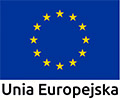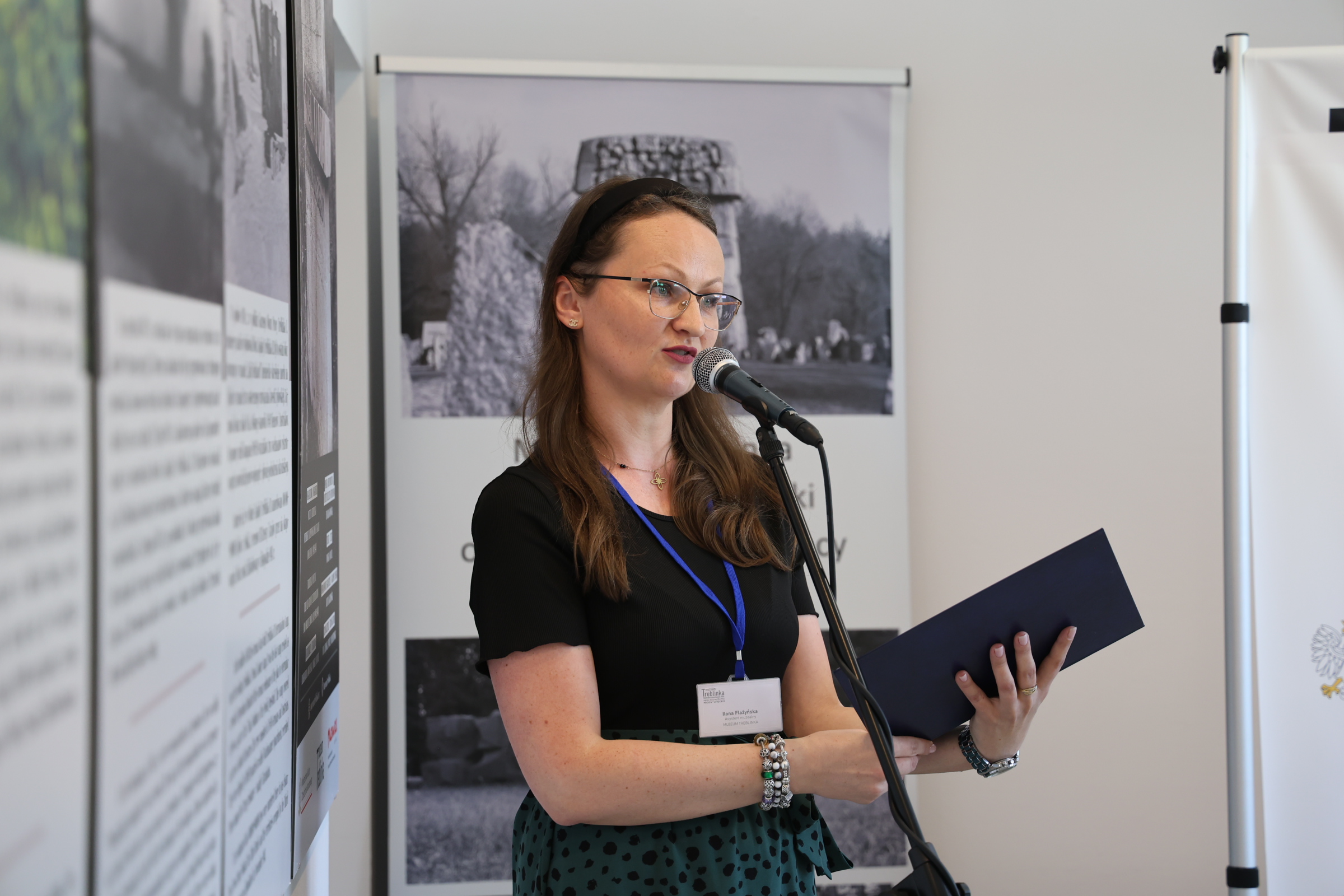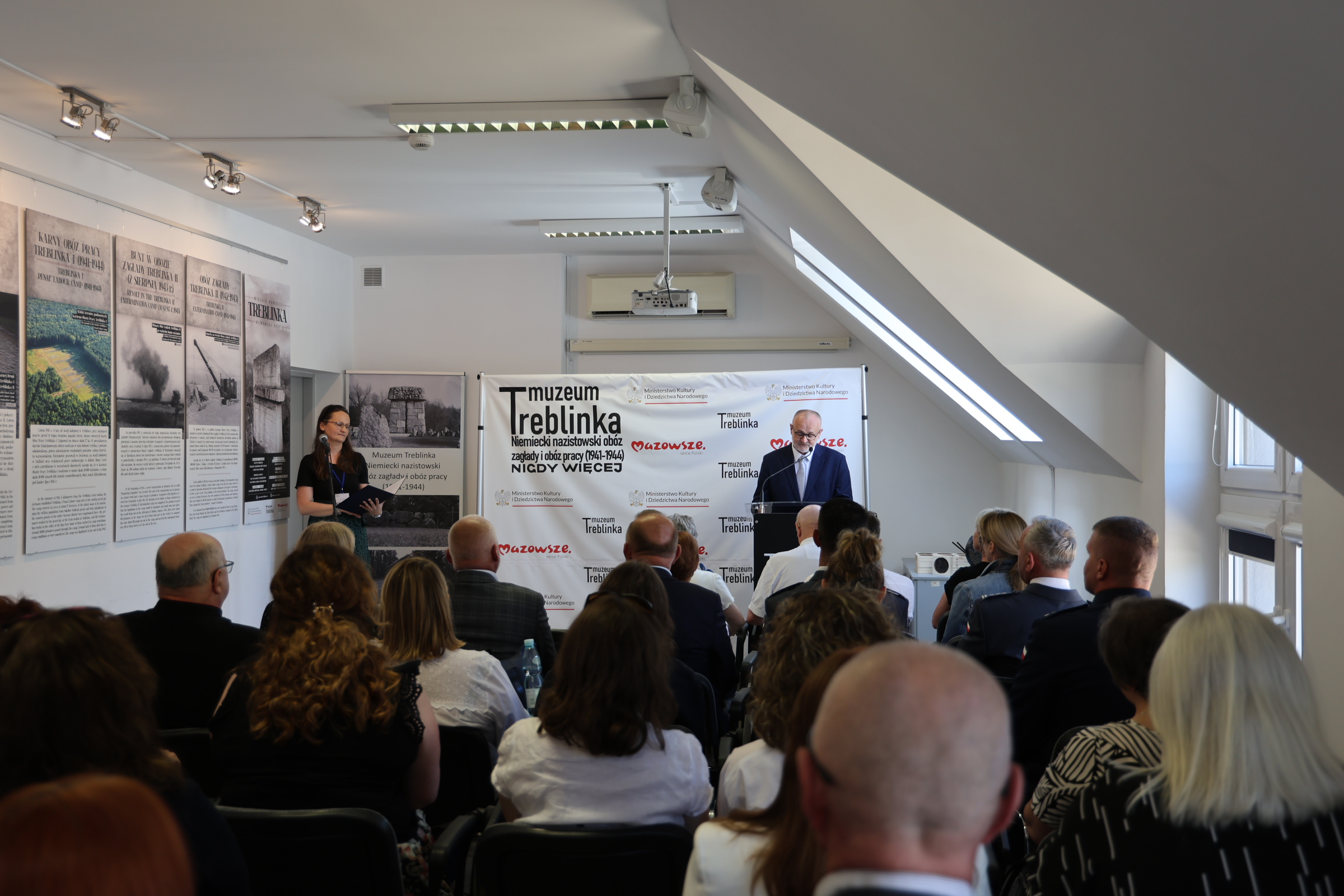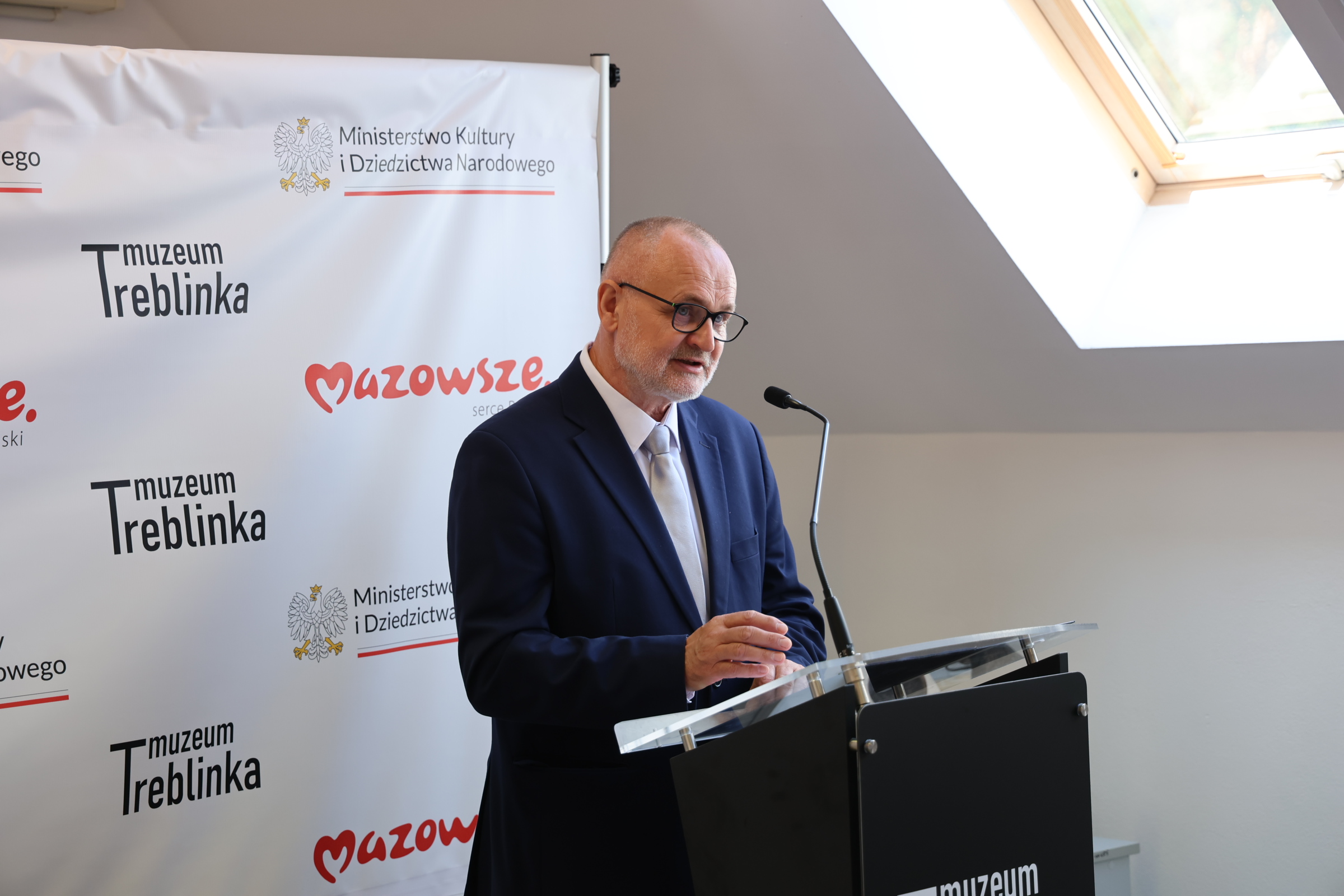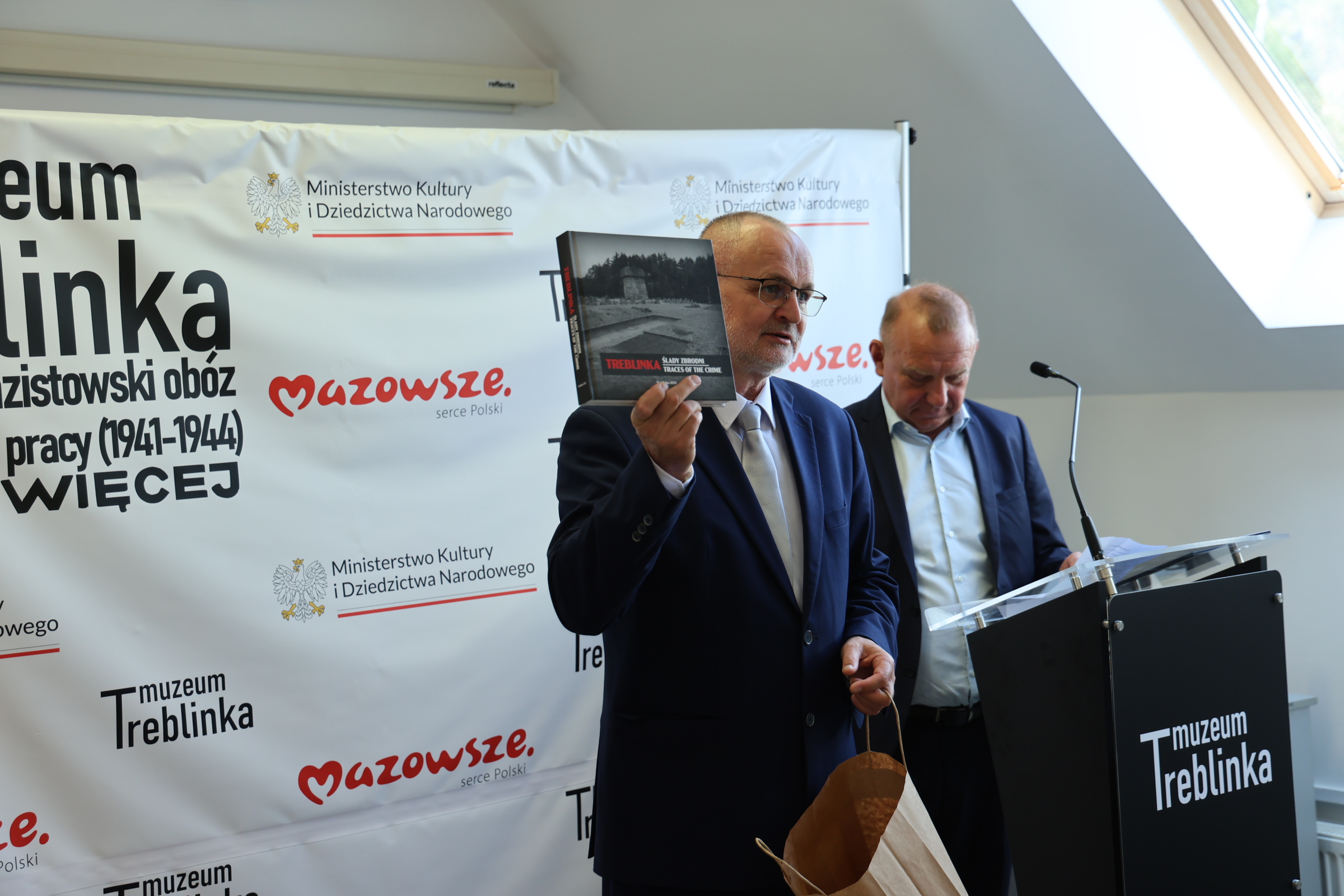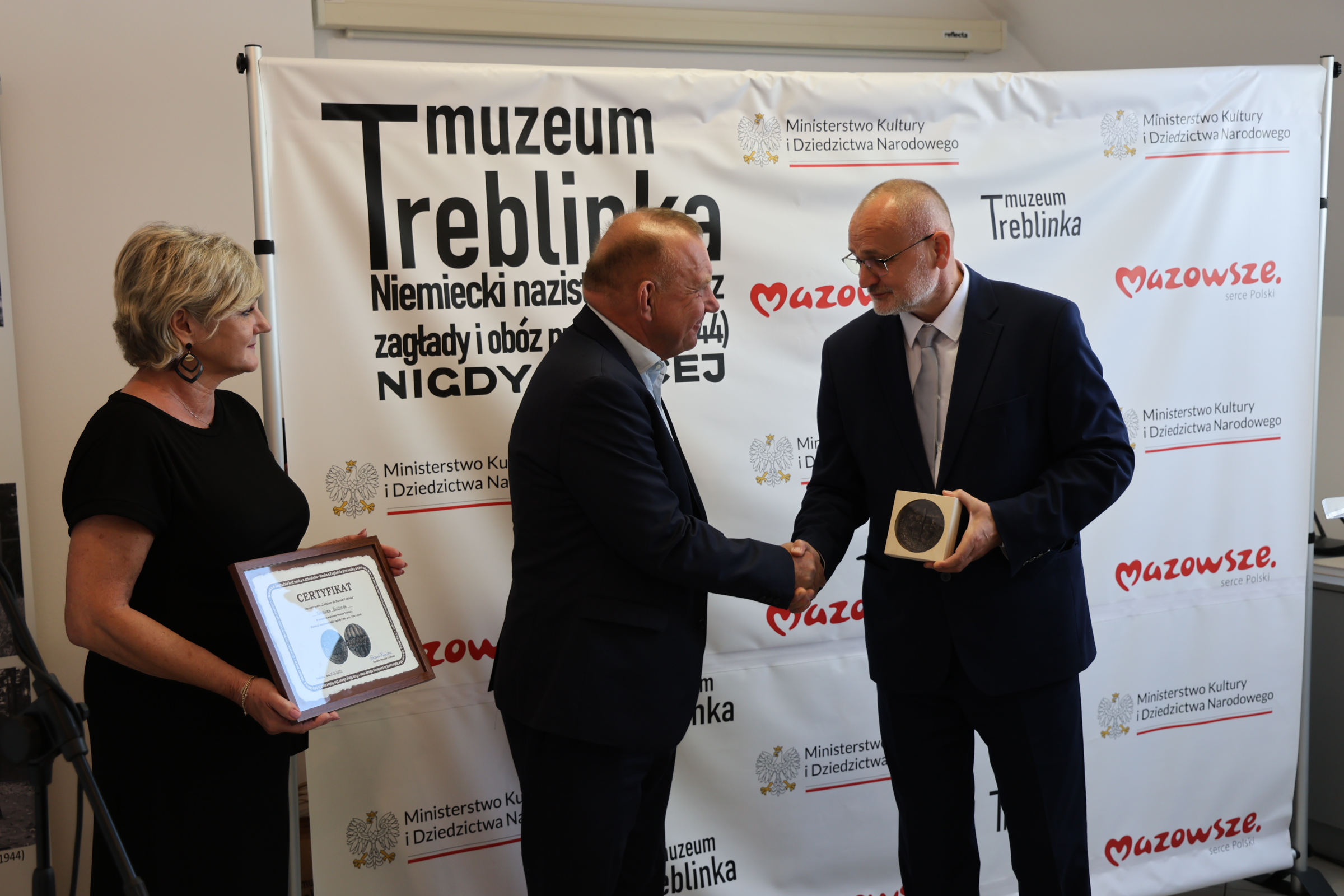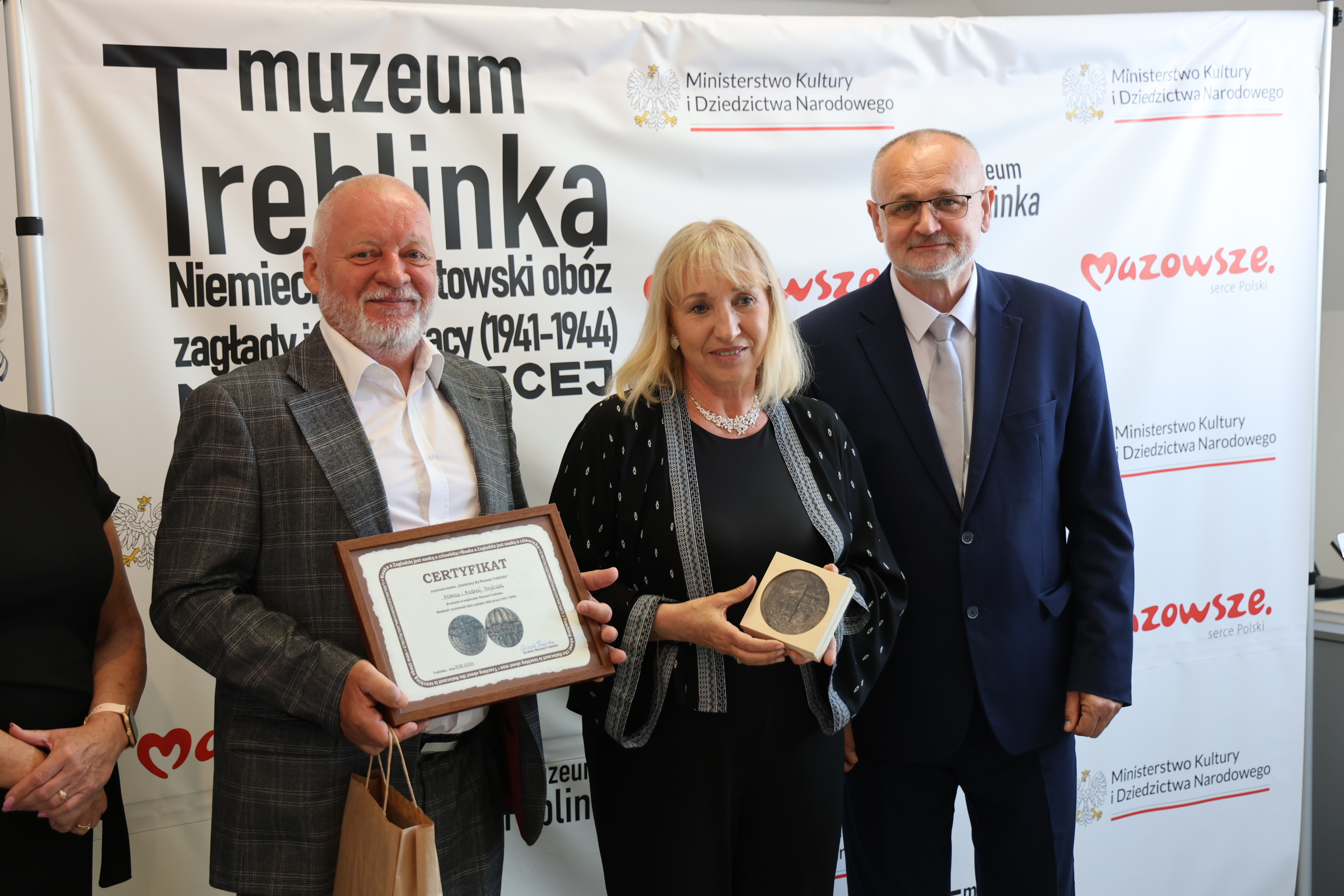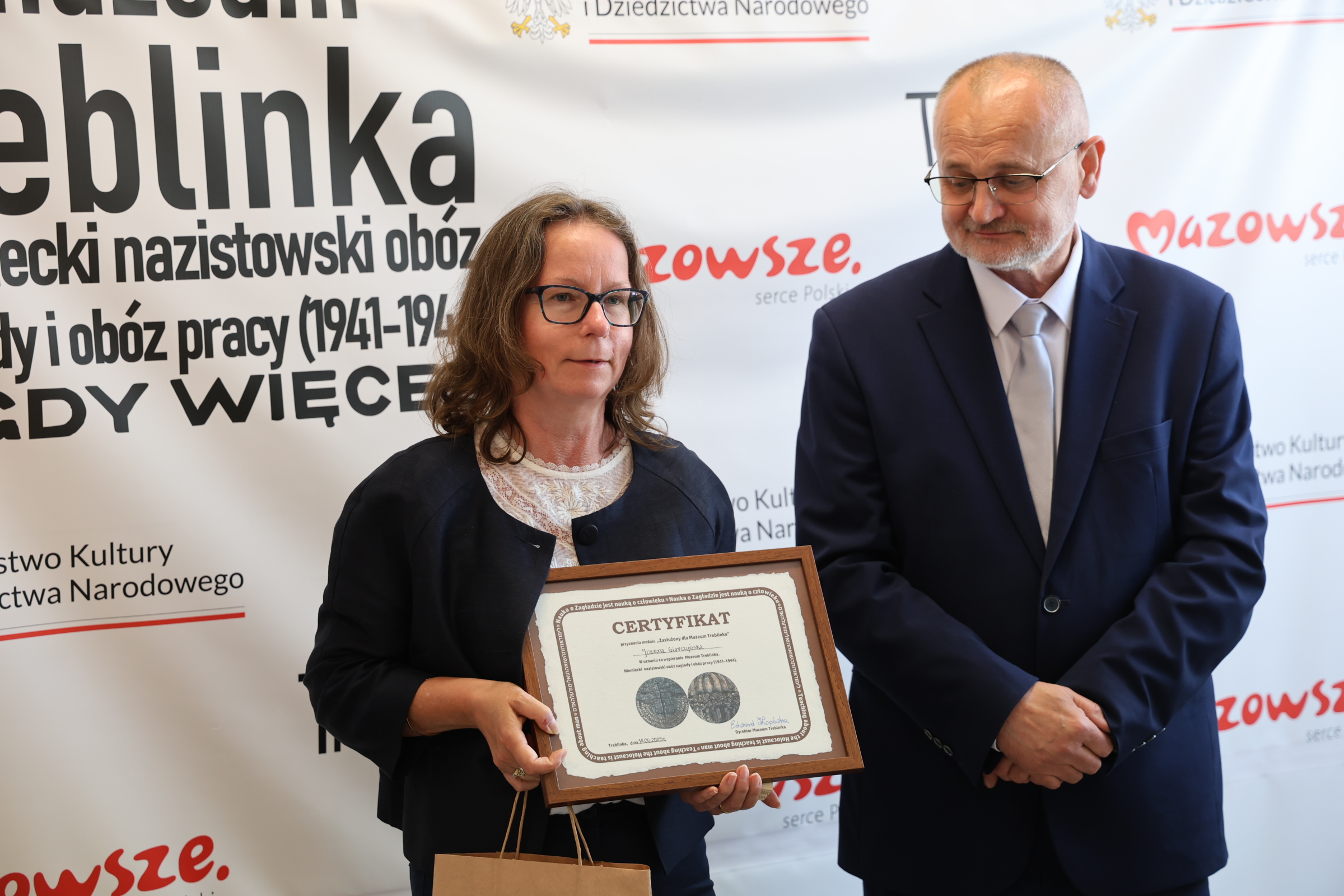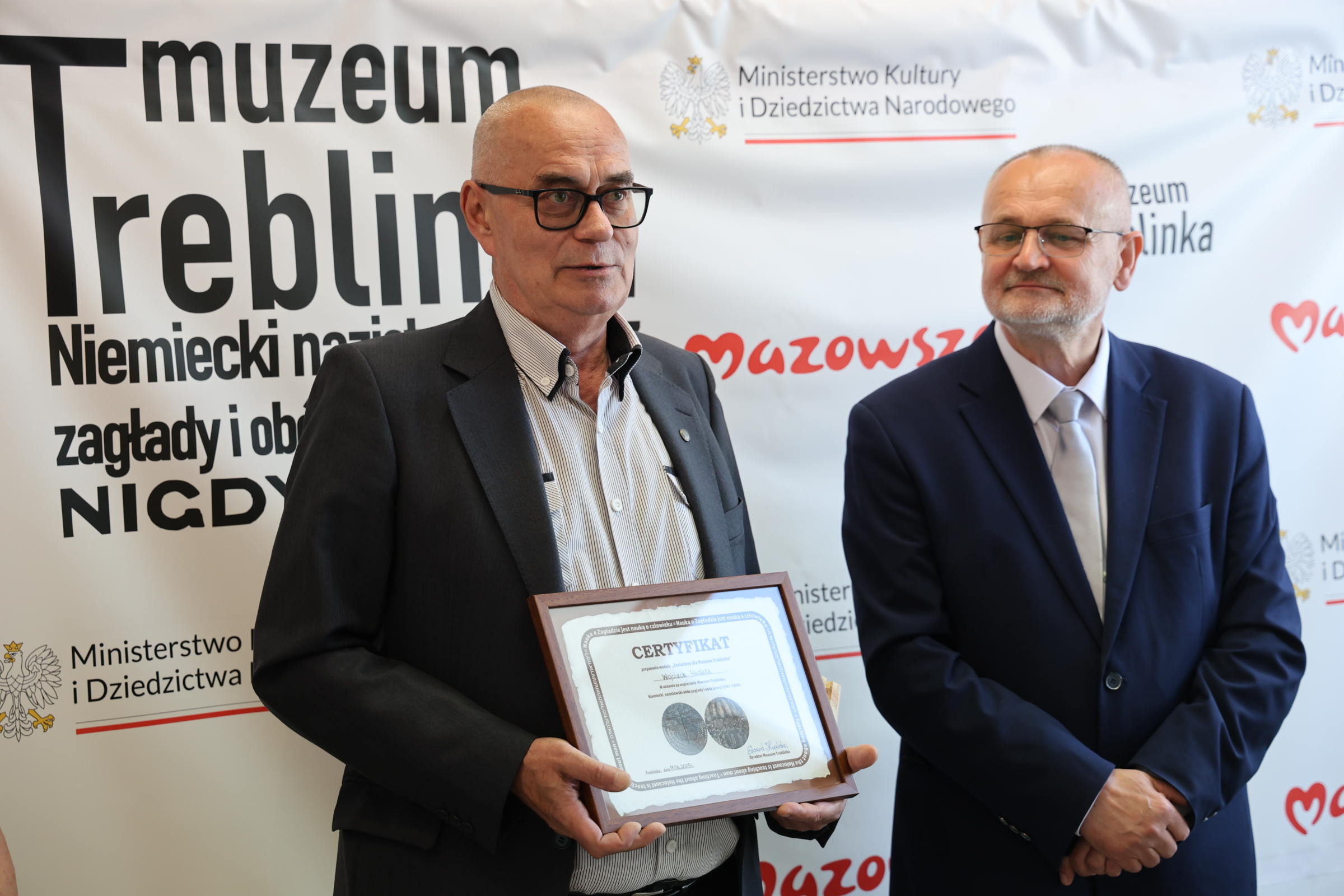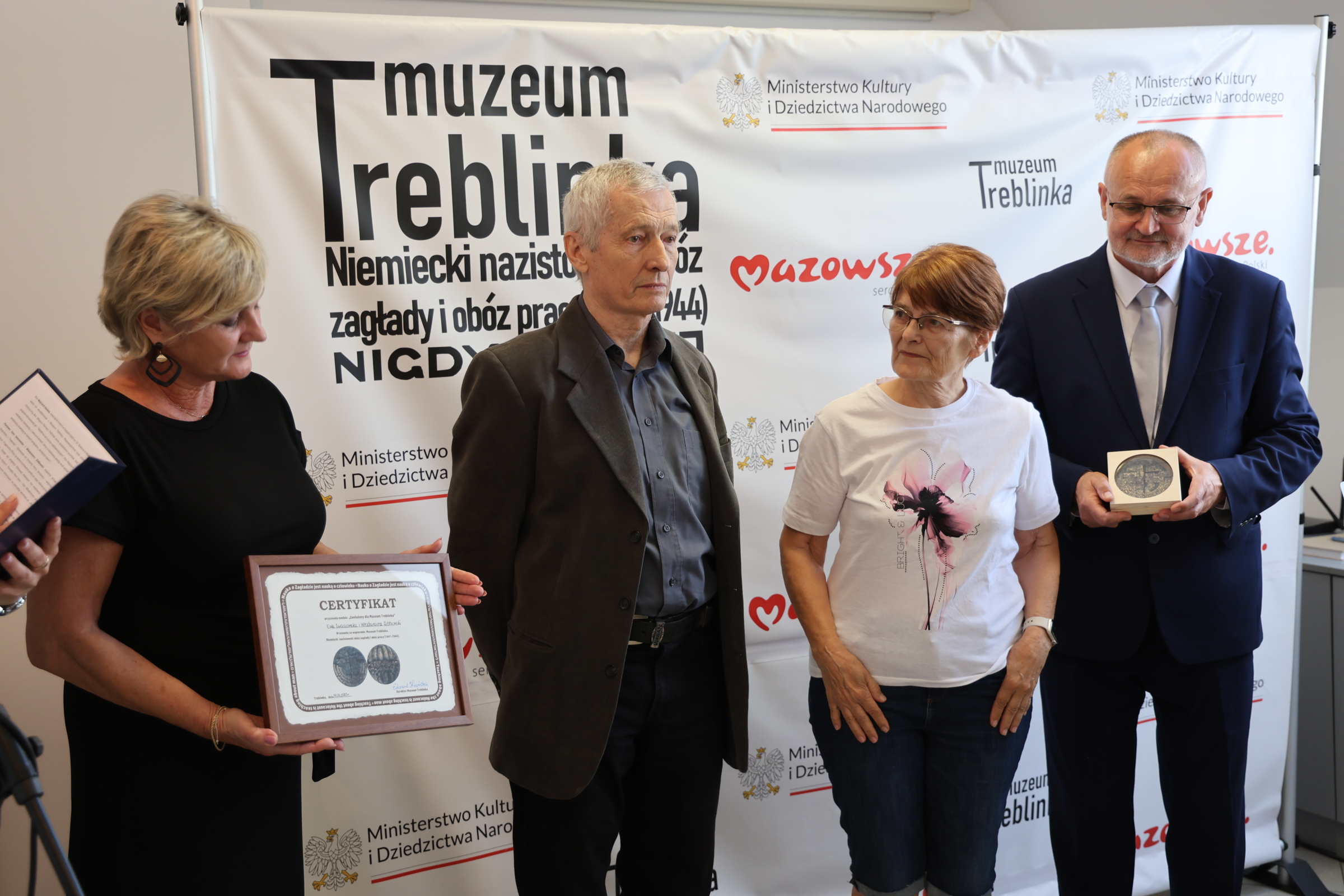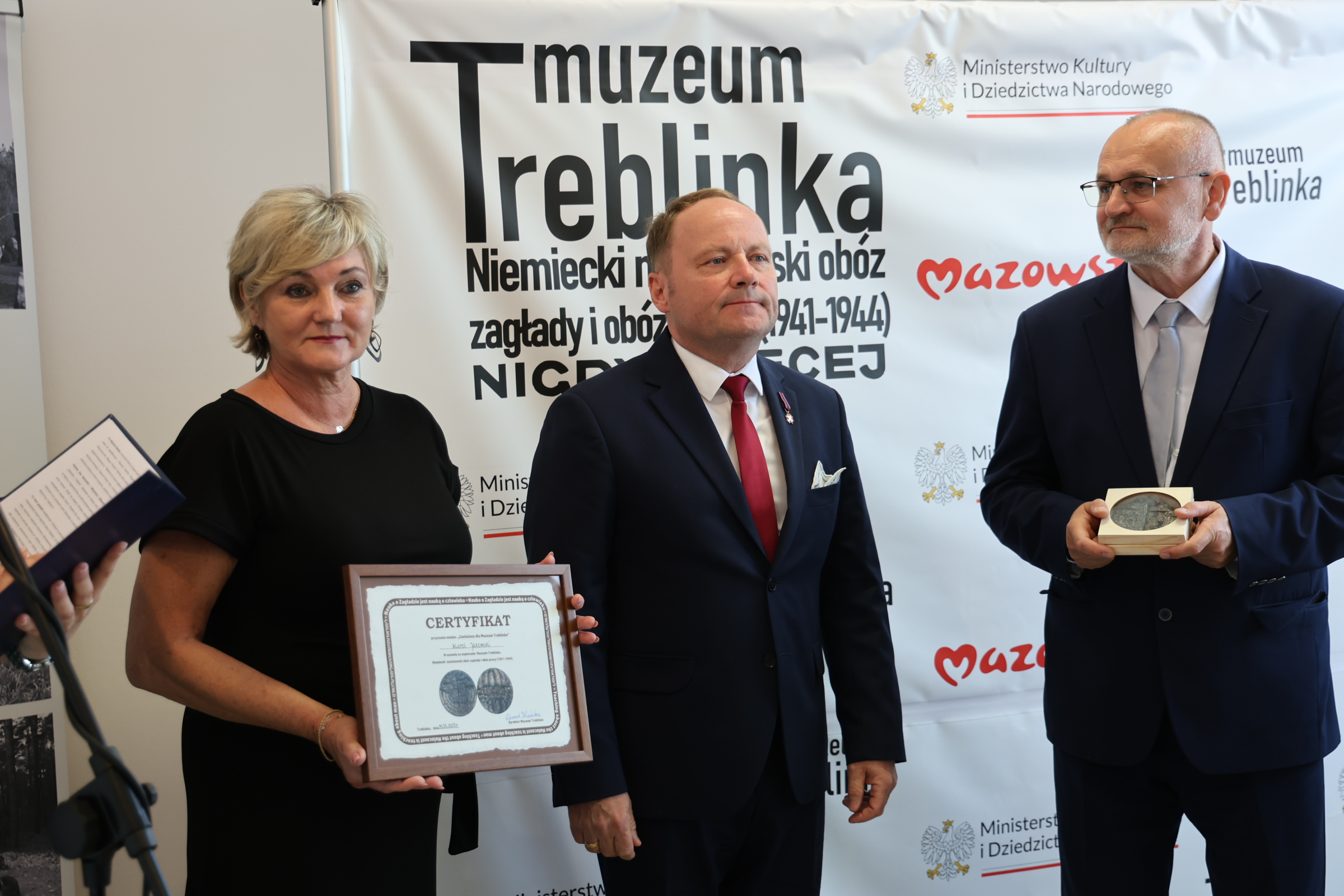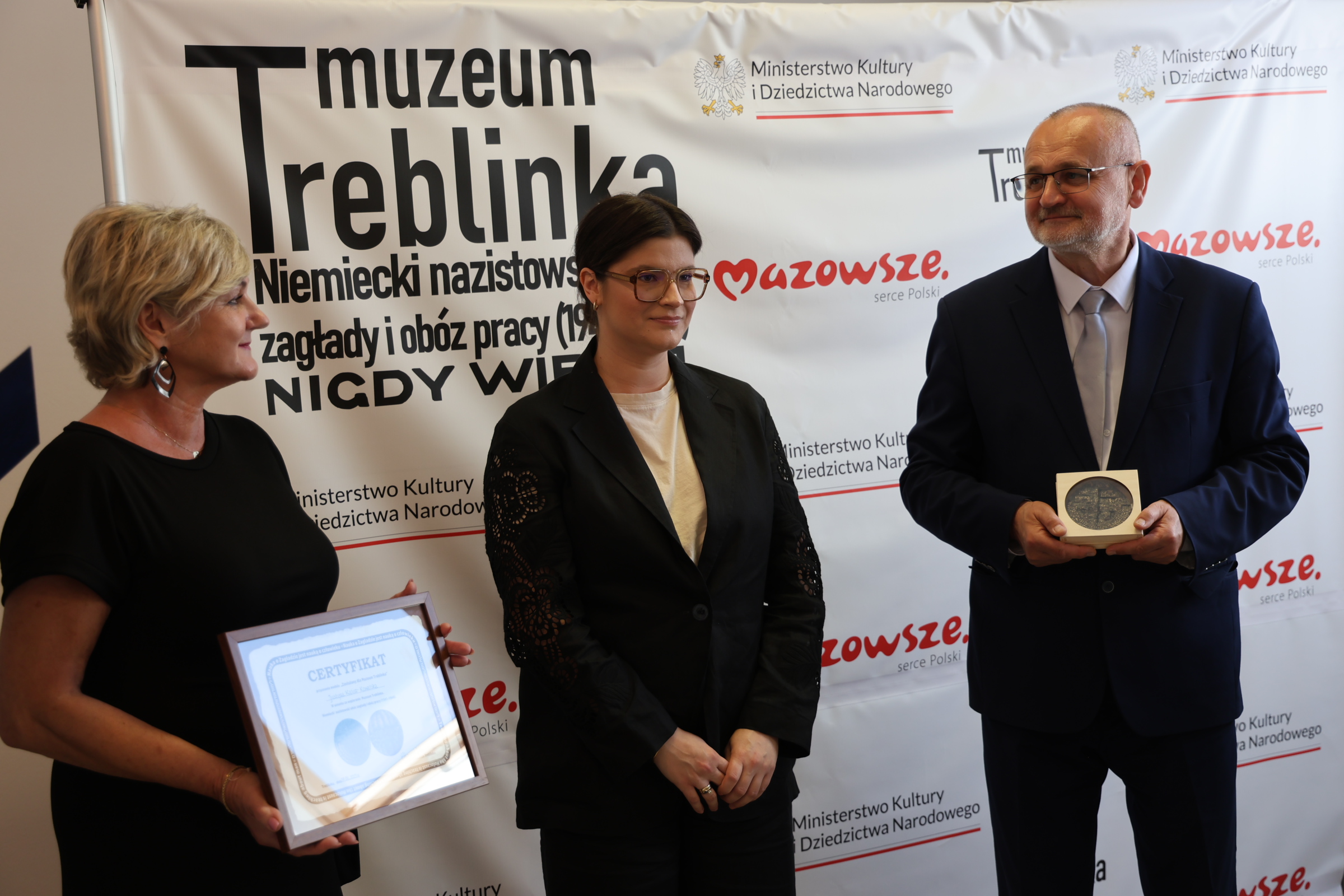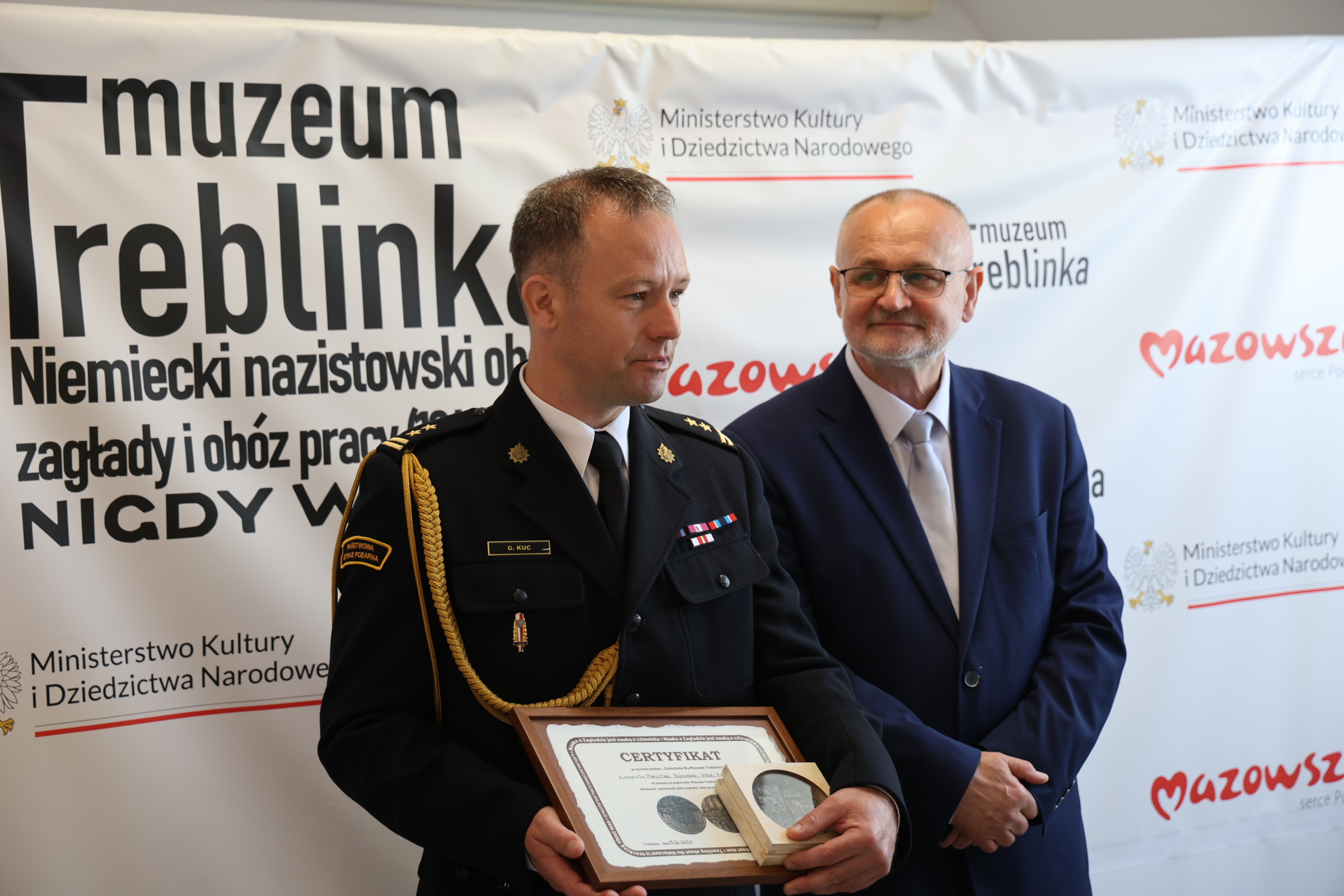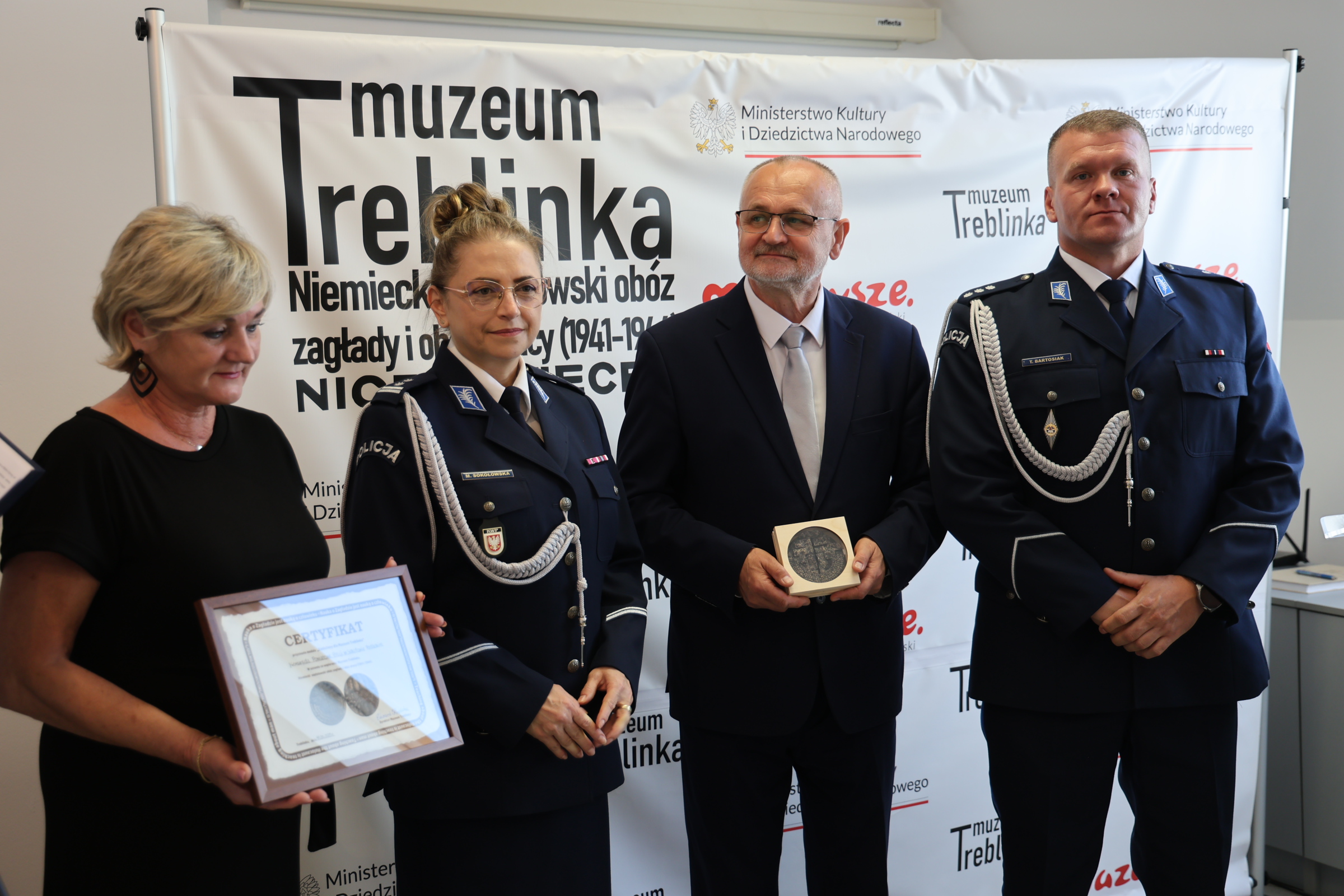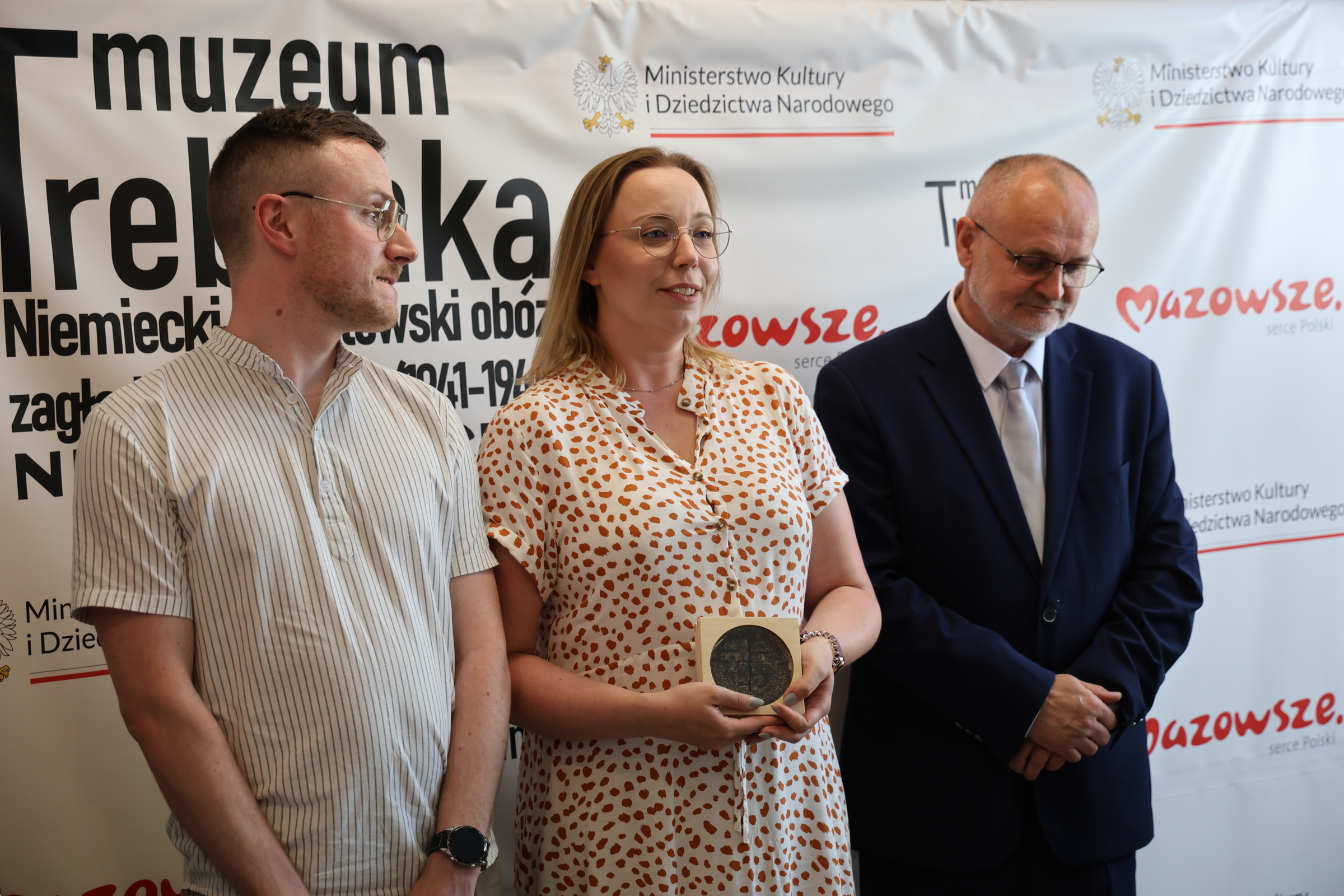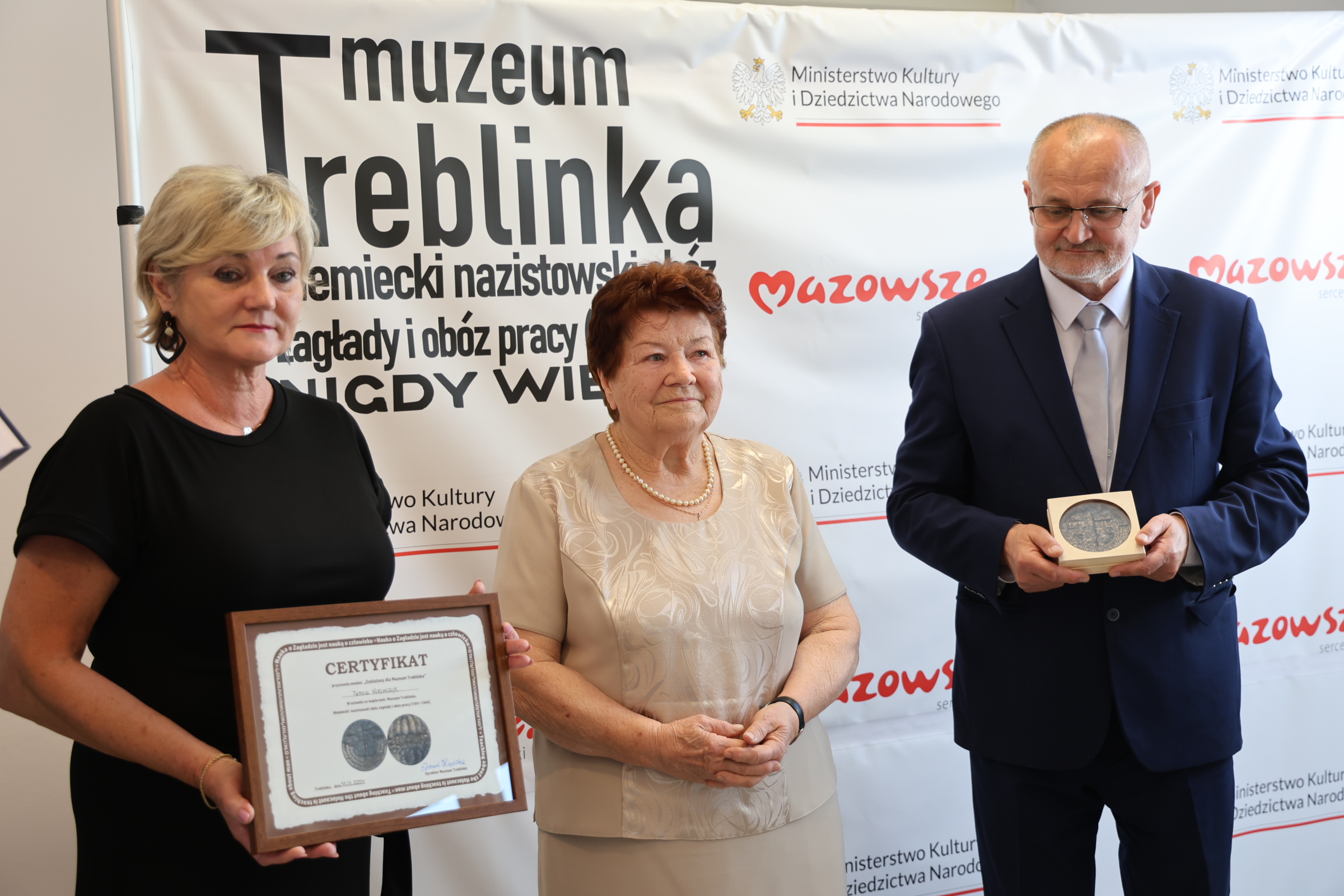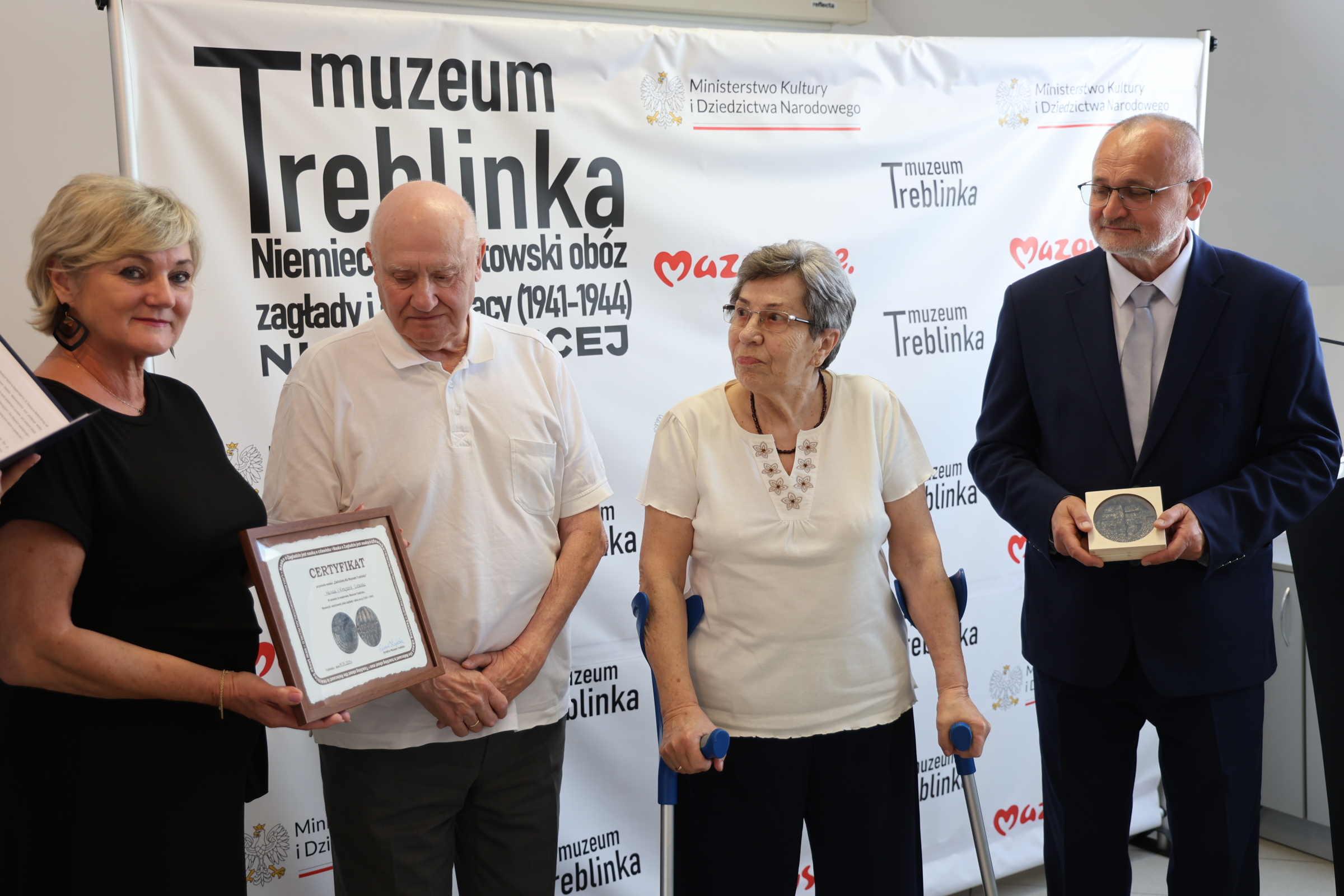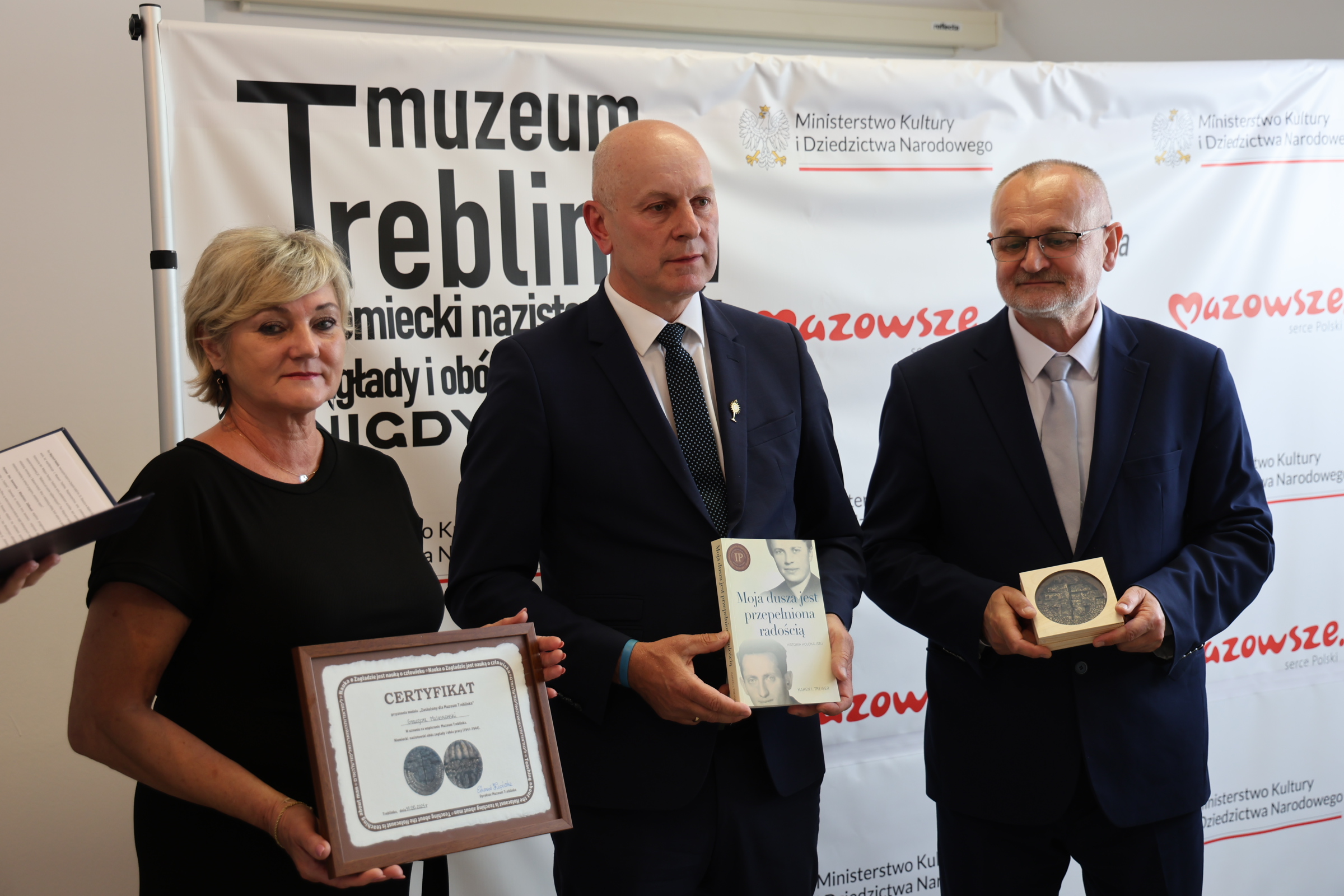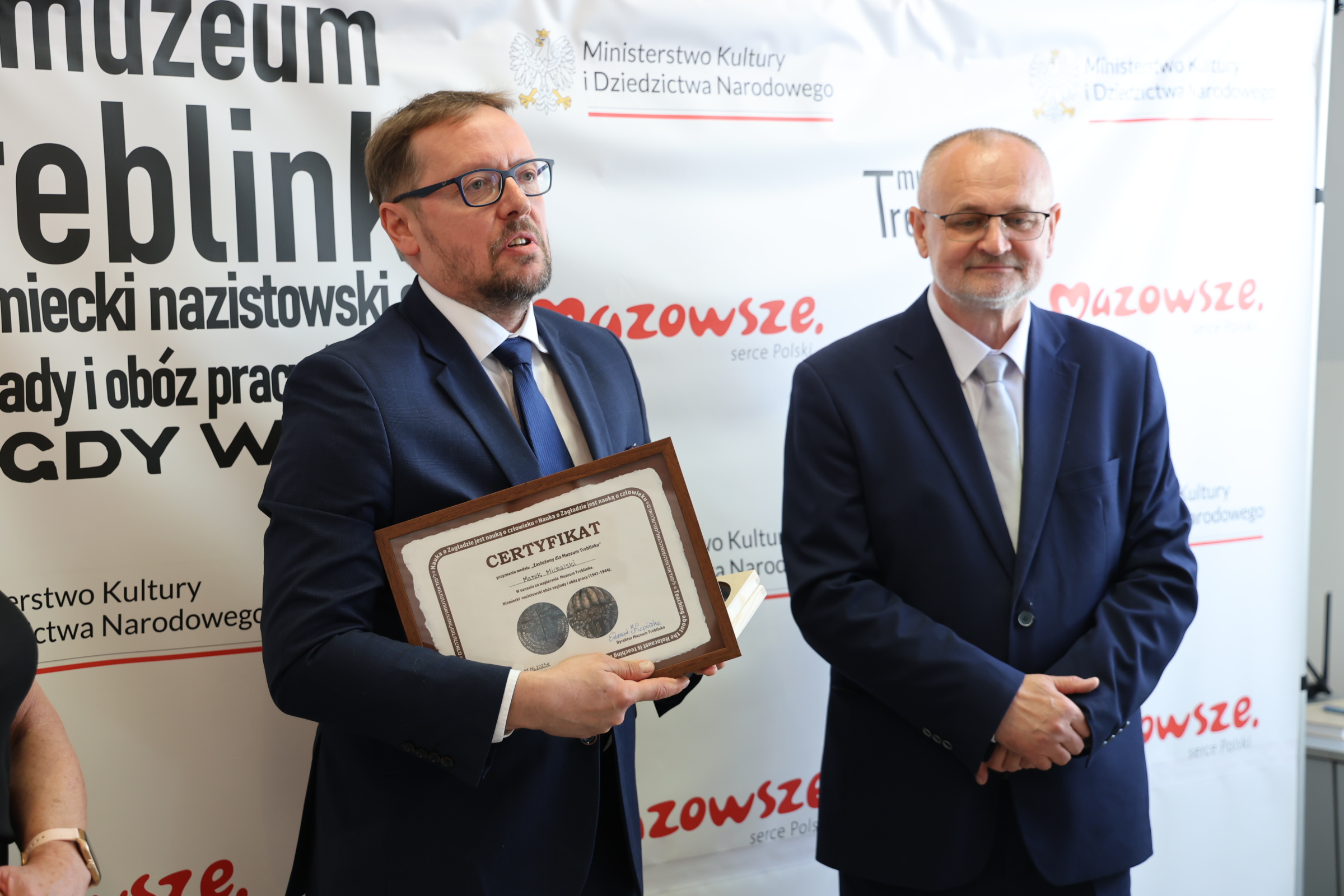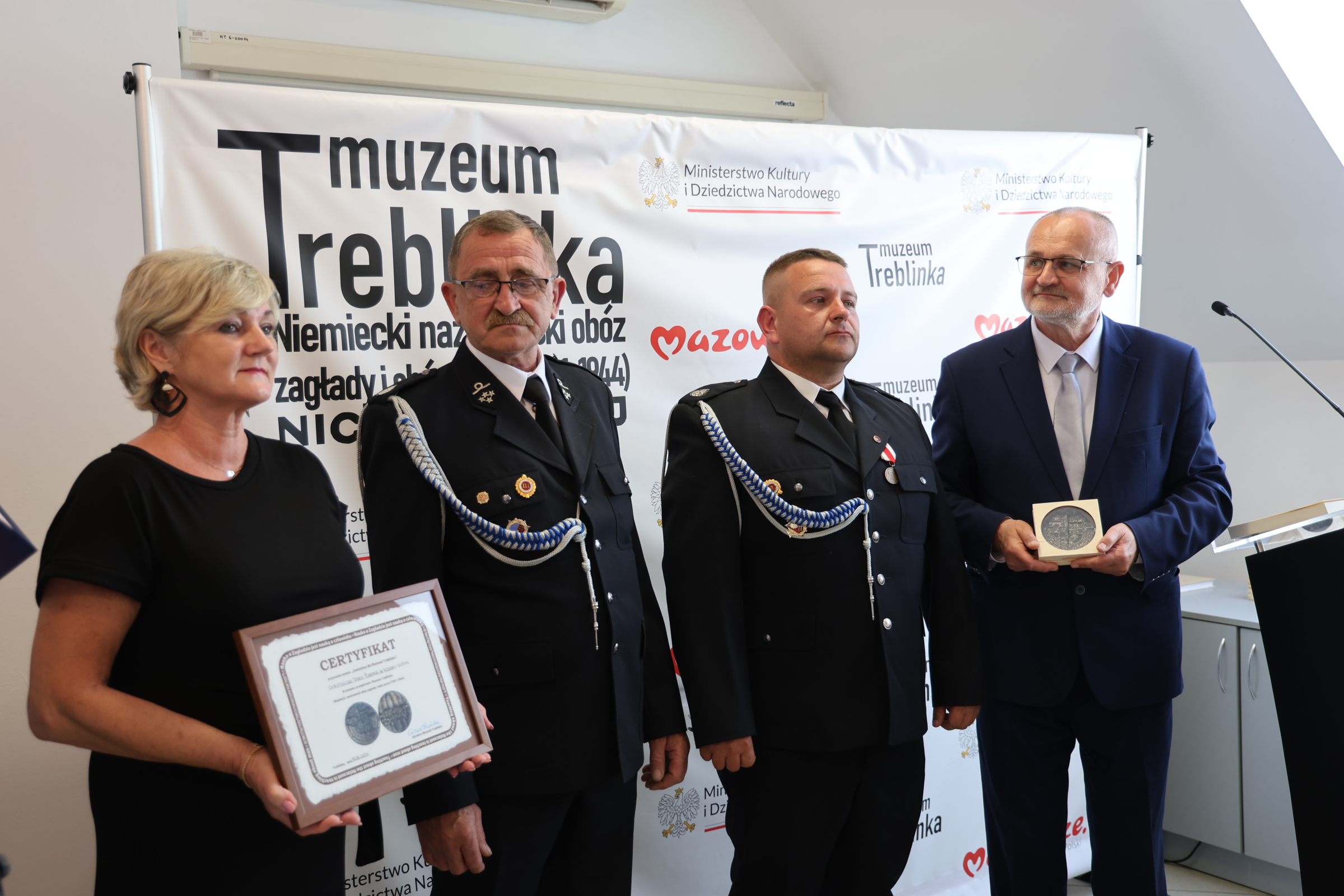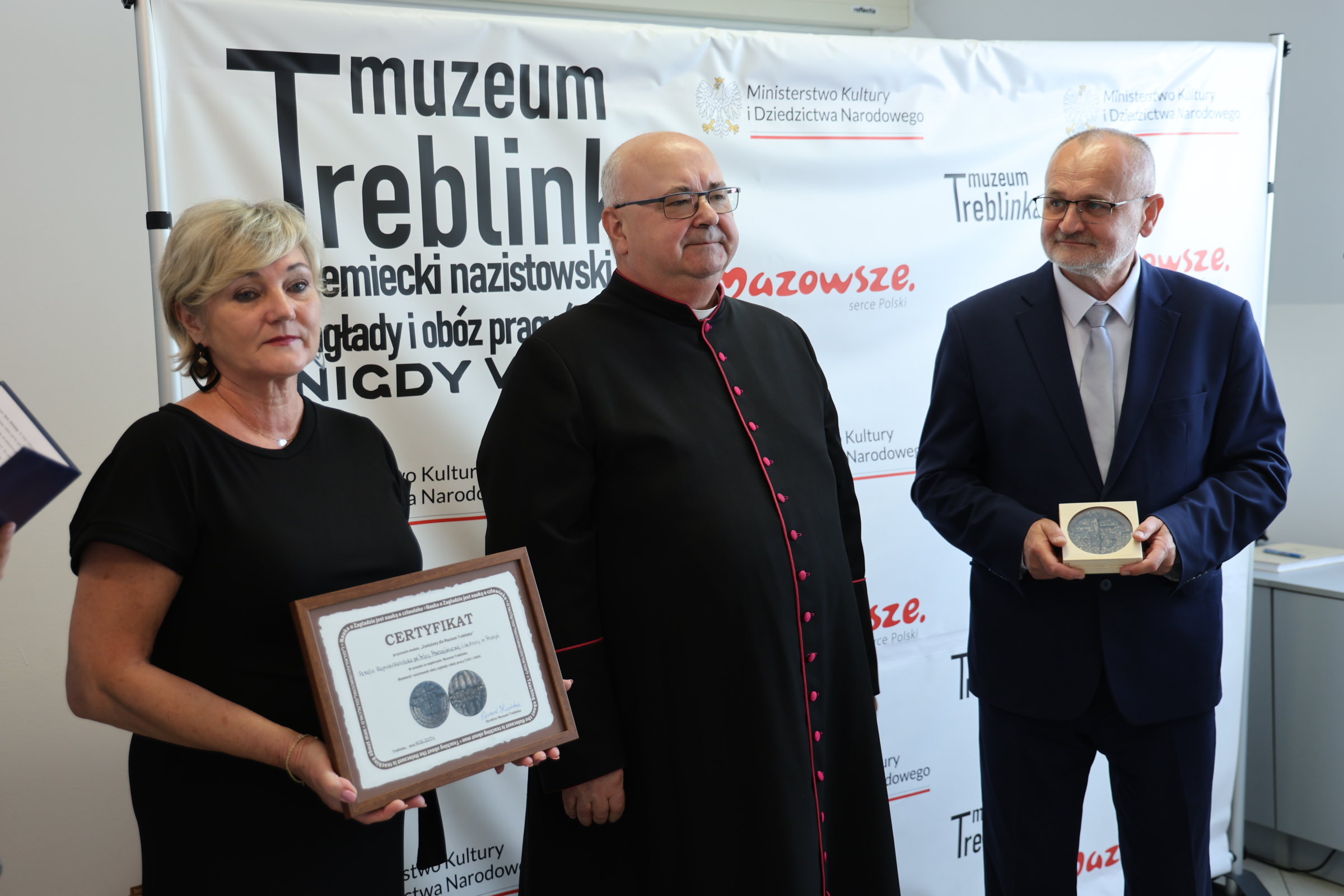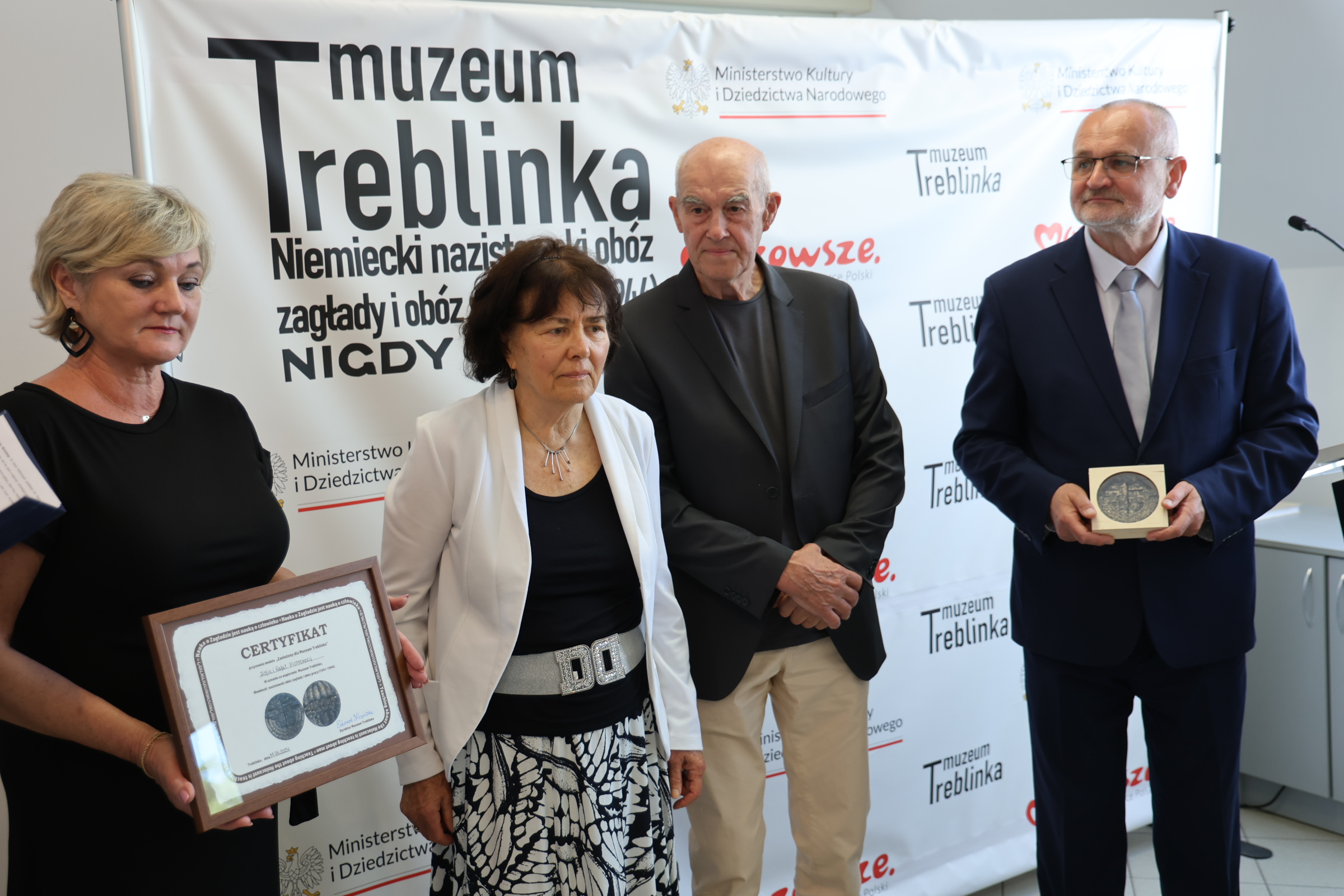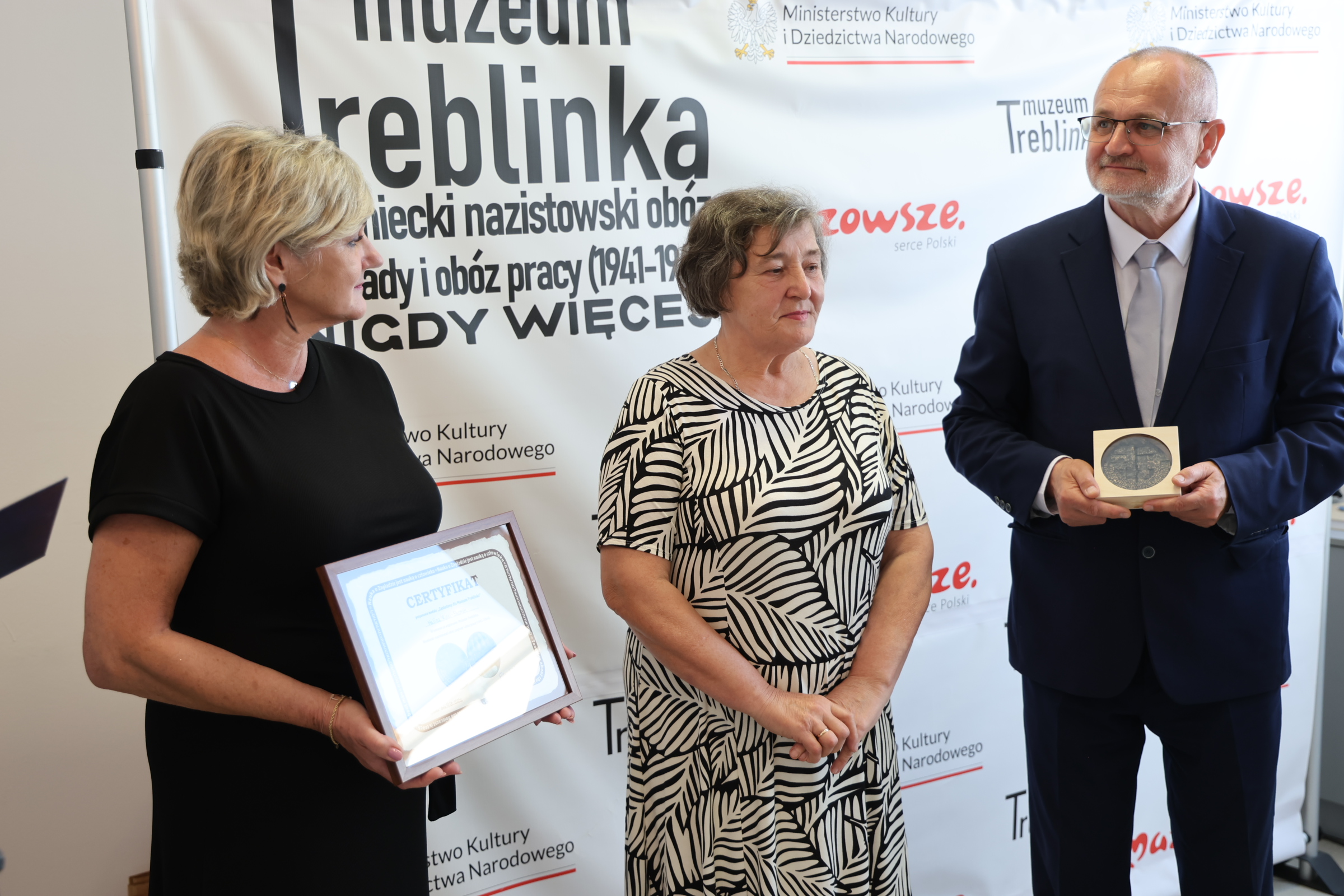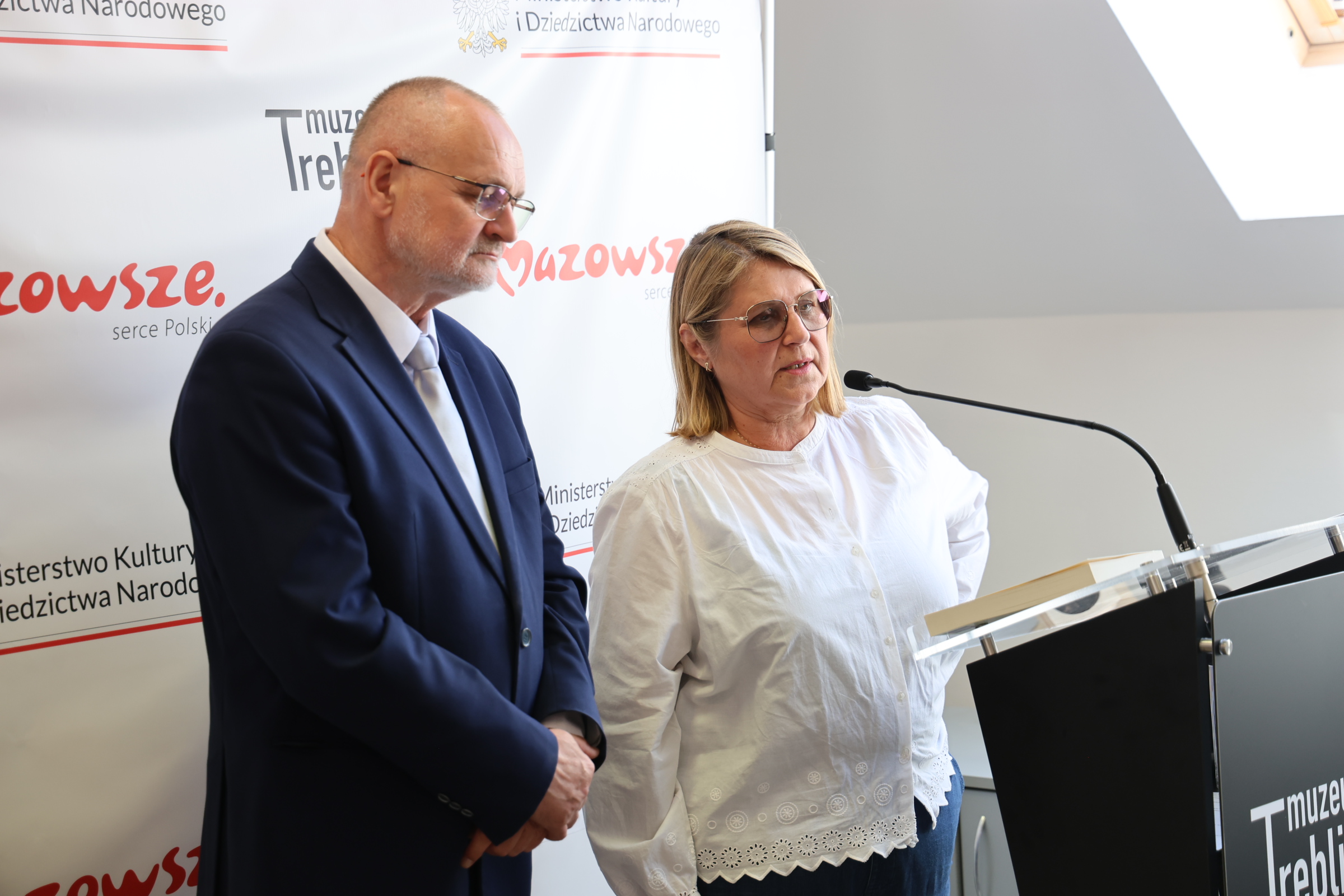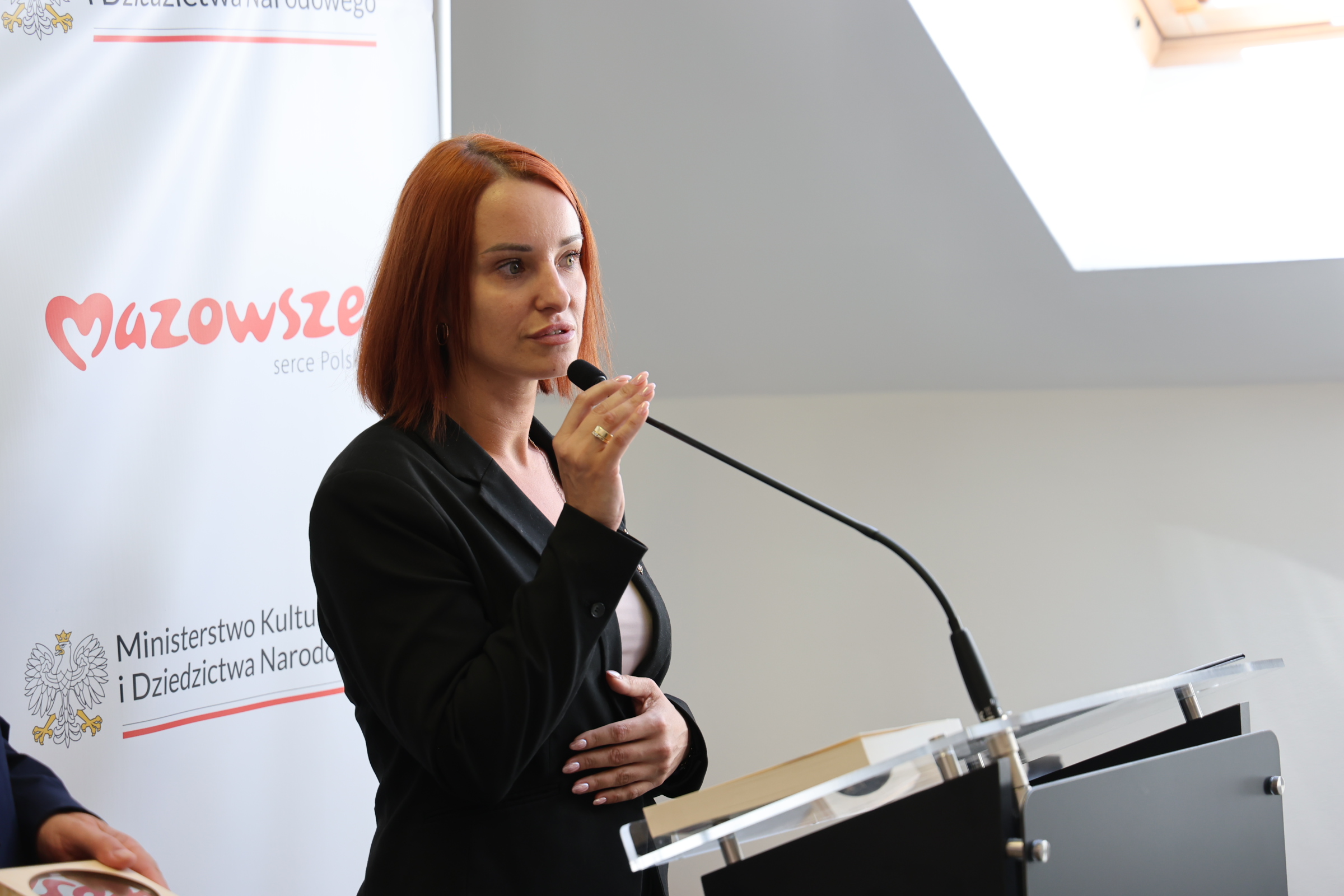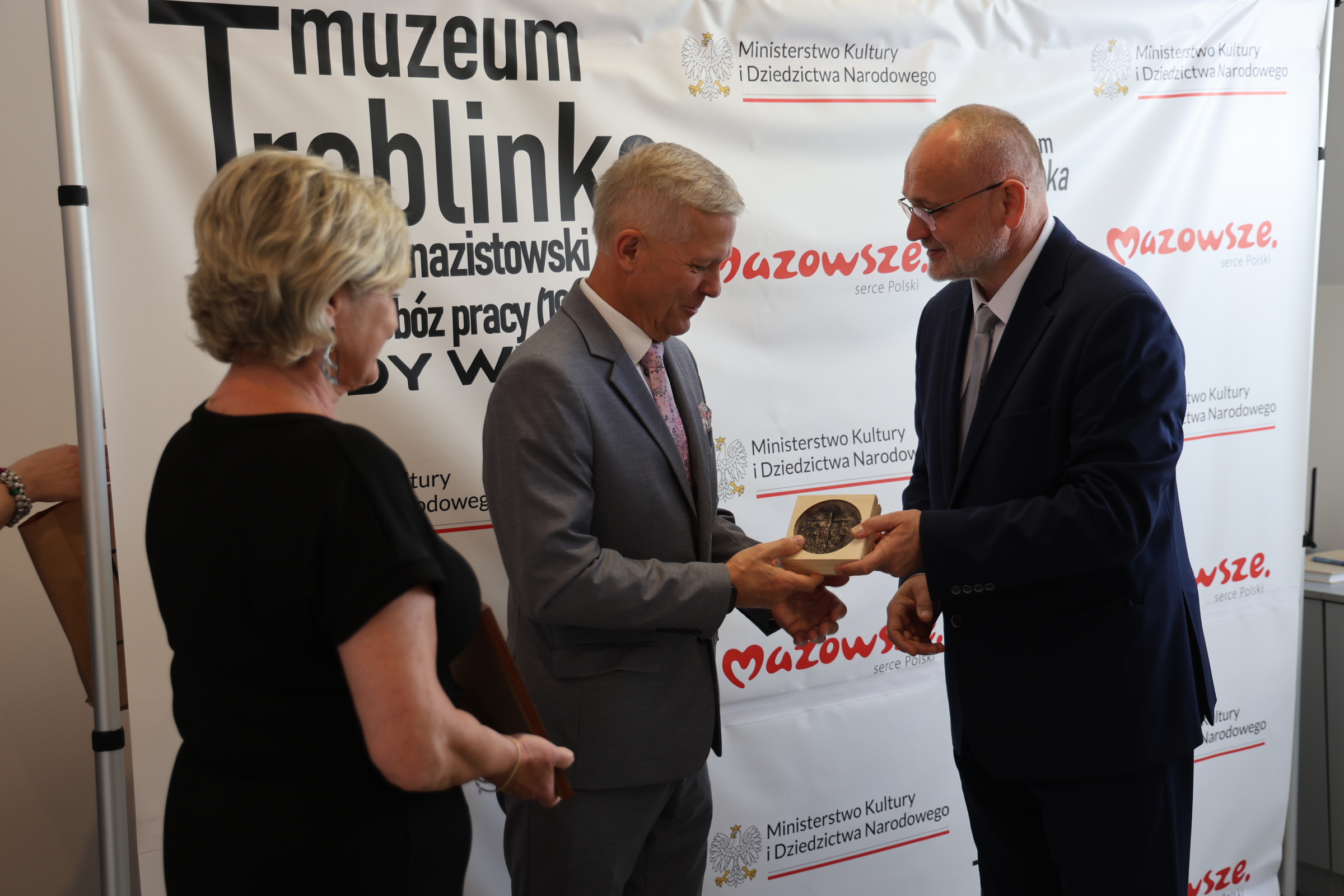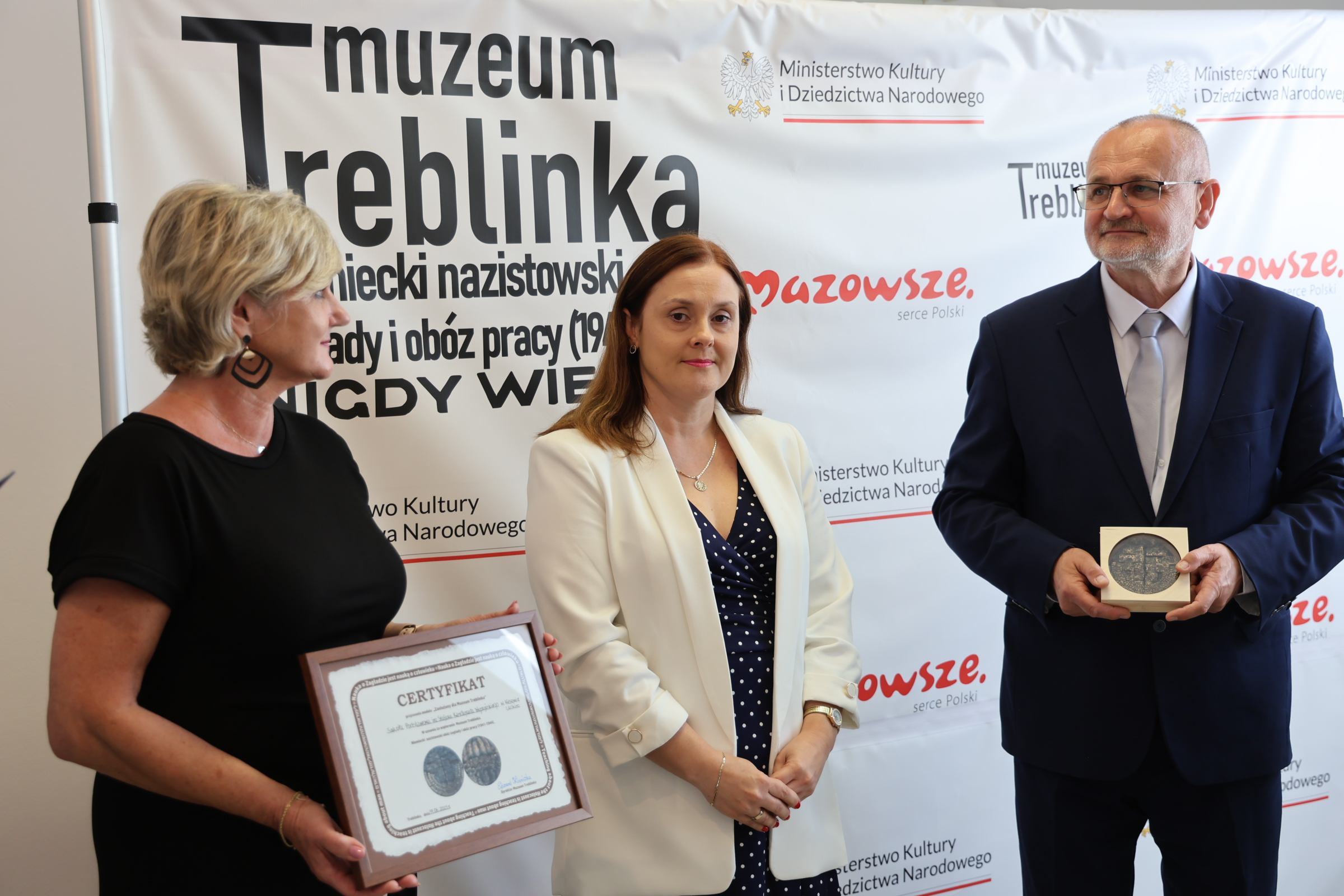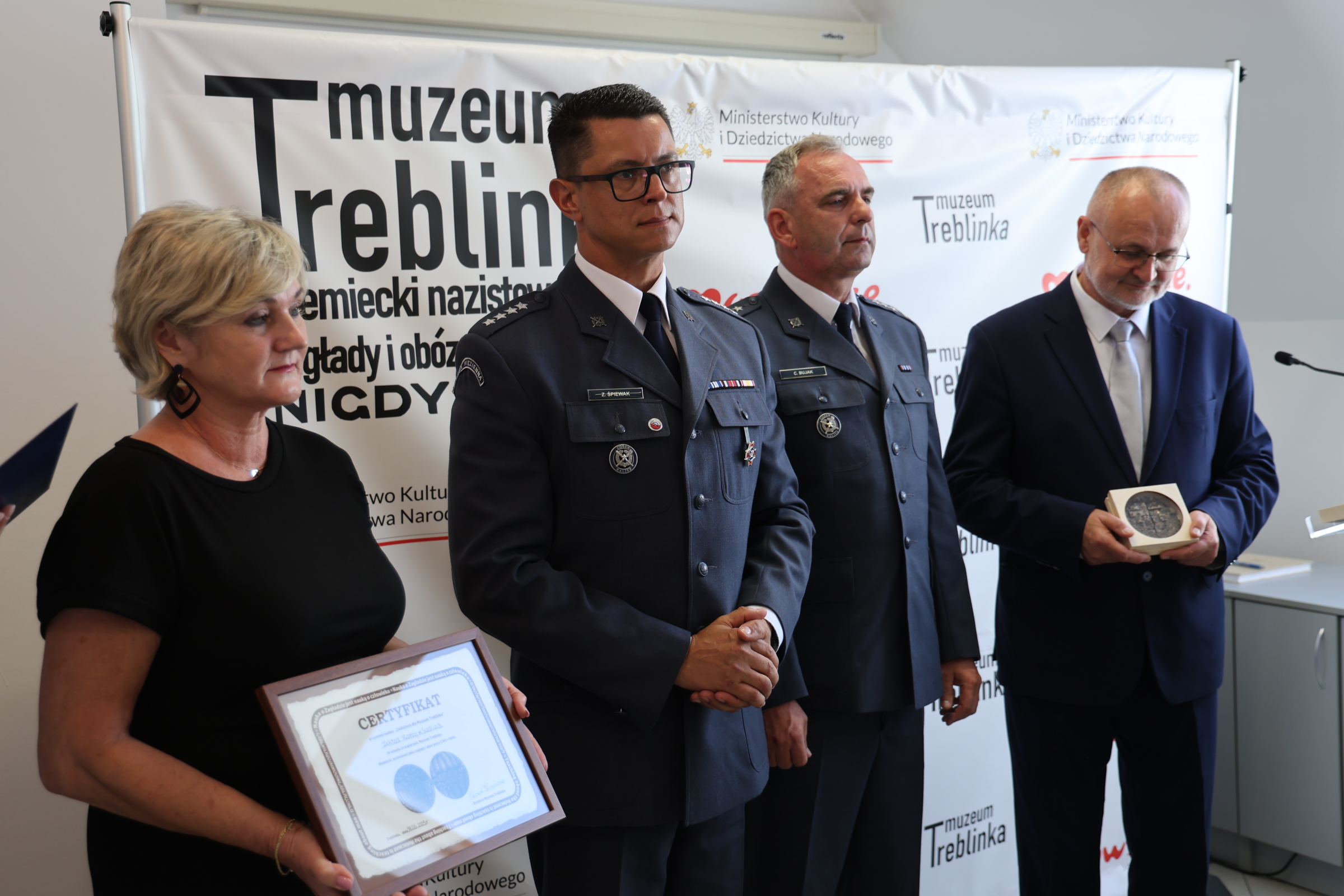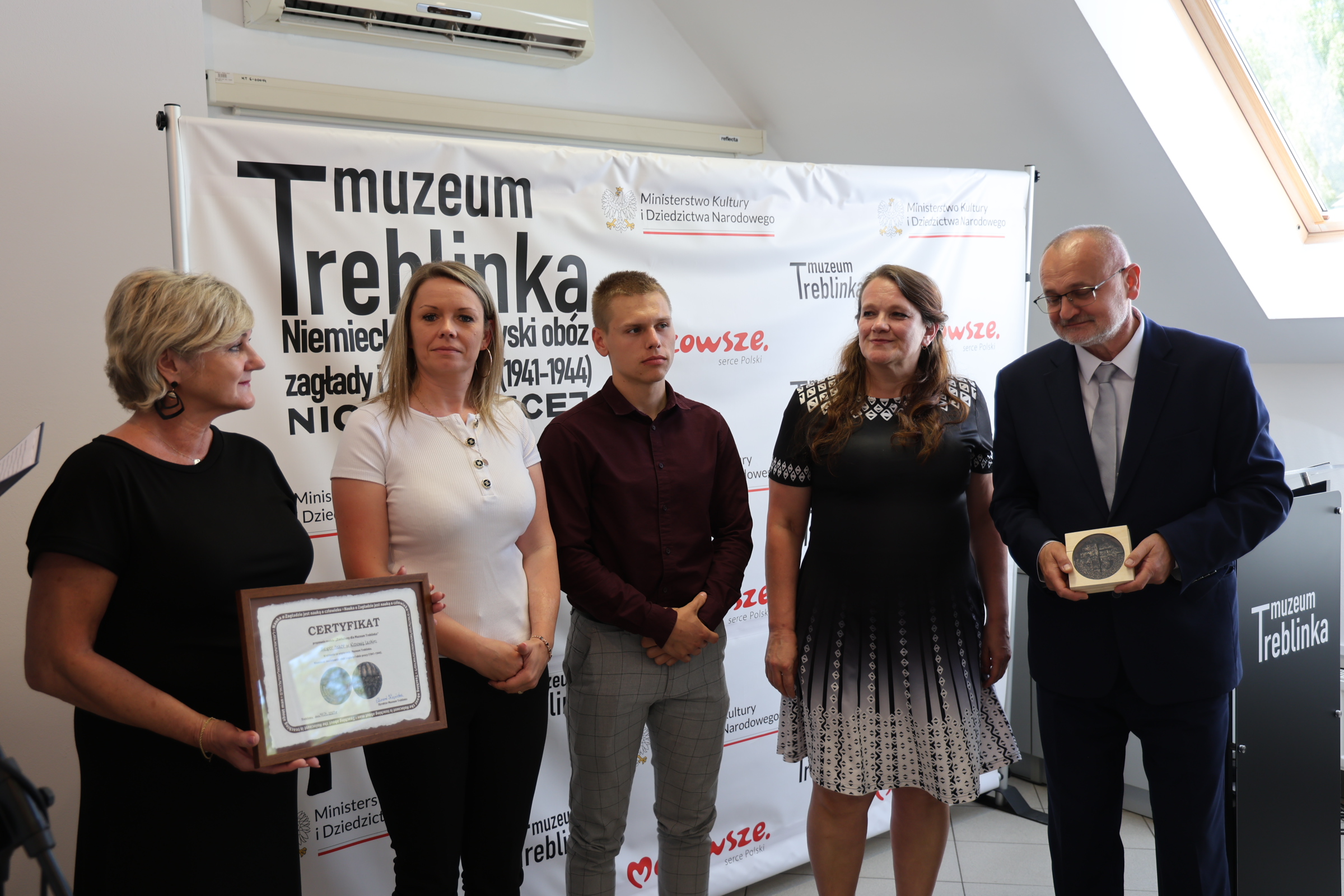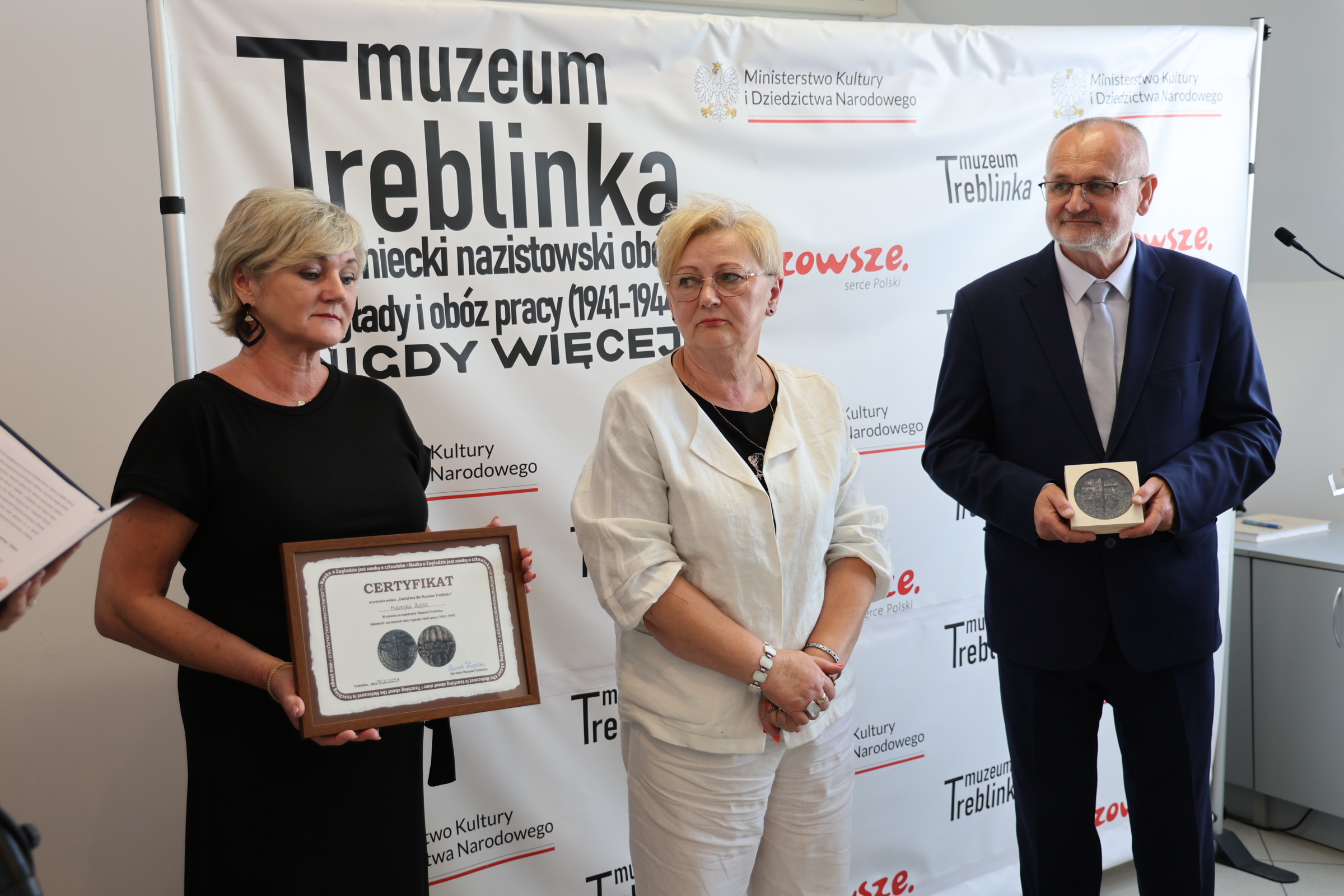On June 16th, as part of the National Day of Remembrance for Victims of German Nazi Concentration Camps and Extermination Camps, a ceremonial presentation of the “Meritorious for the Treblinka Museum” medals was held at the Treblinka Museum.
The “Meritorious for the Treblinka Museum” medal honours individuals and institutions who have made exceptional contributions to the Treblinka Museum. It serves as an expression of gratitude for their commitment and support in fulfilling the Museum’s statutory goals. The medal is awarded to governmental institutions, local government units, social and professional organizations, as well as individuals and legal entities, regardless of nationality or residence, who support efforts to commemorate and document the history of the former German camps: Treblinka II Extermination Camp and Treblinka I Labour Camp. Recipients support the Museum’s development through scholarly, educational, and administrative assistance, help disseminate knowledge about the Museum, or provide financial support.
The following individuals and institutions were honoured:
Zbigniew Banaszek – Promotes the Museum through his own institution, the Museum of the Borderlands and the Ostrow Region. He shows great care and goodwill toward the Treblinka Museum and has brought youth groups there to pass on the difficult history of the site.
Bożena and Andrzej Bryńczak – Longstanding archaeological researchers working on the grounds managed by the Treblinka Museum. They promote the Museum by publishing research findings related to Treblinka.
Joanna Gierczyńska, Head of the Pawiak Prison Museum – Has collaborated for years with the Treblinka Museum, organizing educational meetings where Treblinka staff deliver lectures.
Wojciech Hadała, history teacher at the Stanisław Staszic School Complex in Małkinia Górna – Has worked with the Museum for many years, spreading historical knowledge about Treblinka to generations of students. He authored the popular science book “Małkinia od czasów najdawniejszych” [Małkinia from the Earliest Times] and has participated in Polish-German youth meetings and in the “We Stand Together” program with Israeli youth.
Ewa Iwanowska and Włodzimierz Ziółkowski – Created the film “Stokrotka z Treblinki” about Irena Jancewicz, a prisoner of the labour camp. Fragments of the film are used in educational activities. They also provided photographs and materials for the exhibition “Women in the Treblinka I Penal Labour Camp.”
Karol Jazowski – Collaborates with the Museum in sharing individual prisoner stories. In 2023, he donated the release document of Kazimiera Giernatowska and helped prepare her biography for the “Women in the Treblinka I Penal Labor Camp” exhibition.
Justyna Kalisz-Kowalska – Has worked with the Museum to preserve individual stories of Treblinka victims. In 2024, she donated letters written by Zygmunt Deptuła, a Treblinka I prisoner. These are used in workshops, exhibitions, and publications.
District Fire Brigade Headquarters – Actively supports the Museum with professionalism and exemplary public service.
District Police Headquarters in Sokołów Podlaski – Ensures safety at the Museum, especially during visits from international delegations and Israeli youth groups.
Aleksandra and Bartosz Kowalski – Former Museum employees. Aleksandra promoted the Museum online and co-authored publications and exhibitions. Bartosz, as an archaeologist, was involved in excavations at Treblinka I and II, in collaboration with institutions such as IPN [Institute of National Remembrance] and Warsaw University of Technology.
Teresa Krawczyk – Donated a German death certificate of Zygmunt Deptuła and shared biographical information. In 2024, she gave an interview about her childhood memories of visiting the camp’s vicinity with her aunt.
Hanna and Krzysztof Lubaszka – Support the Museum through donations and by sharing valuable information about Jerzy Gregorczyk, a prisoner of the labour camp.
Grzegorz Maleszewski – Provided assistance and historical context to Karen Treiger, author of “My Soul is Filled with Joy”, about Treblinka II survivor Sam Goldberg.
Marek Michalski – Presents Treblinka’s history and topography at conferences, participated in archaeological research, and co-authored scientific publications about Treblinka I.
Volunteer Fire Brigade in Kosów Lacki – Longtime supporters of the Museum, assist with events and road maintenance within Museum-managed areas.
Parish of the Holy Trinity and St. Anne in Prostyń – Organizes annual patriotic-religious ceremonies at the Museum every first Saturday of September since the early 1990s.
Zofia and Rafał Piotrowski – Collaborate with the Museum since 2019. In 2022, supported the biography of Andrzej Piotrowski for the “Pawiak Prisoners Executed in Treblinka” exhibition. In 2024, Rafał shared the story in an interview. They participate in youth education efforts.
Halina Rytel-Skorek – Provides the Museum with information and documents on the Treblinka railway station, and shares her publications on the region.
Dorota Rzepecka – Collaborates with the Museum in preserving the memory of Robert Żerman, a prisoner of Treblinka I. She donated documents, photos, and other materials.
Ewa Siwek – Thanks to her work at the Municipal Center of Culture and Sport in Małkinia Górna, Museum exhibitions are displayed locally. She also organizes educational workshops. Her great-uncle, Aleksander Stefaniak, was executed for bringing bread to prisoners during the camp’s operation, giving her connection to the Museum a deeply personal dimension.
Director of the Special Educational Center in Zuzela – The Center collaborates with the Museum on educational initiatives, especially inclusive materials for people with intellectual disabilities. In 2022, the Center joined the “Korczak Forest” project.
Cardinal Stefan Wyszyński Primary School in Kosów Lacki – Longstanding educational partner of the Museum. Both students and teachers actively participate in commemorative events.
Penitentiary in Siedlce – Has a cooperation agreement with the Museum. Inmates attend lectures and workshops as part of rehabilitation, and also help with maintenance work at the Memorial.
School Complex in Kosów Lacki – A committed partner in many of the Museum’s projects. Actively participates in the “We Stand Together” program, promoting Polish-Israeli youth exchange and remembrance of Treblinka II victims.
Henryka Żabik – Donated the death certificate of Józef Saks and smuggled notes he sent to his wife. These documents provide valuable insight into life at the labour camp and are used in Museum education and exhibitions.





